In My Brother’s House
Edgar Calel & Paulo Nazareth

In My Brother’s House
2023 Installation view, San Juan Comalapa, Chimaltenango, Photo: Margo Porres
In My Brother’s House
2023 Installation view, San Juan Comalapa, Chimaltenango, Photo: Margo Porres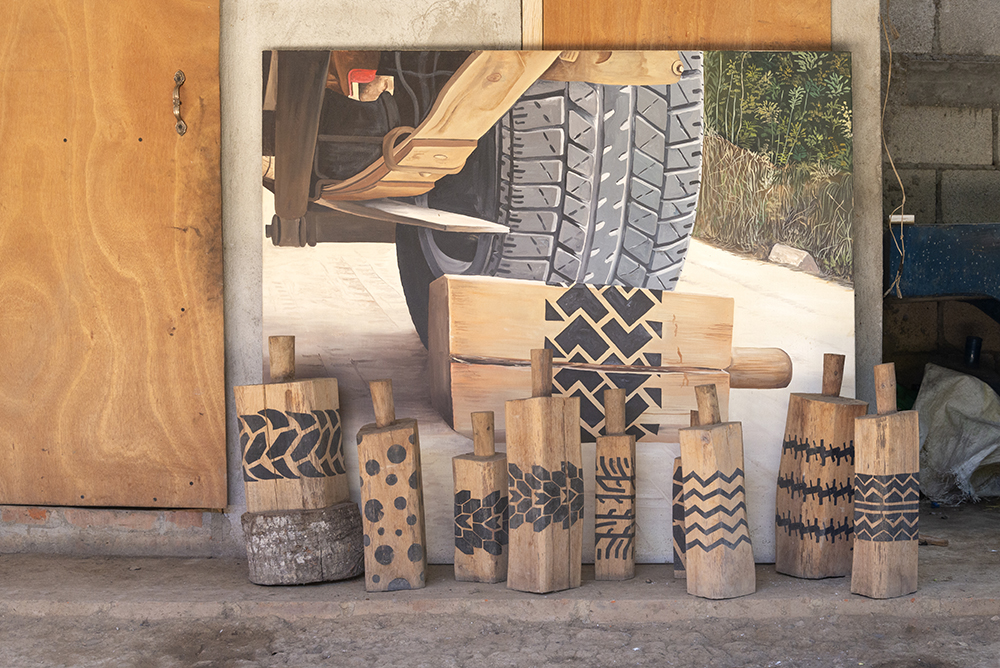
In My Brother’s House
2023 Installation view, San Juan Comalapa, Chimaltenango, Photo: Margo Porres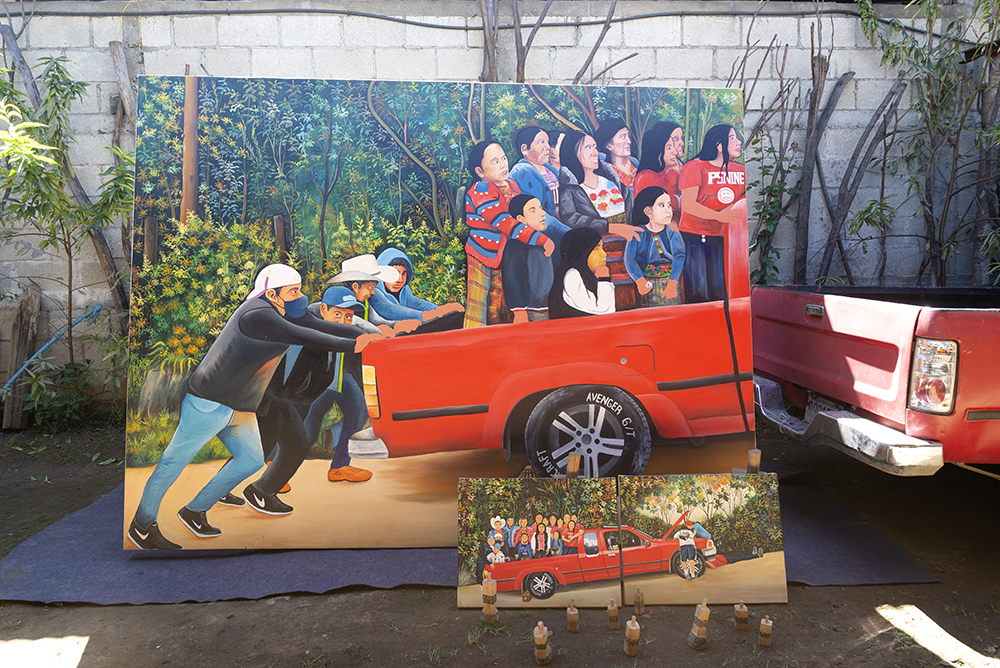
In My Brother’s House
2023 Installation view, San Juan Comalapa, Chimaltenango, Photo: Margo Porres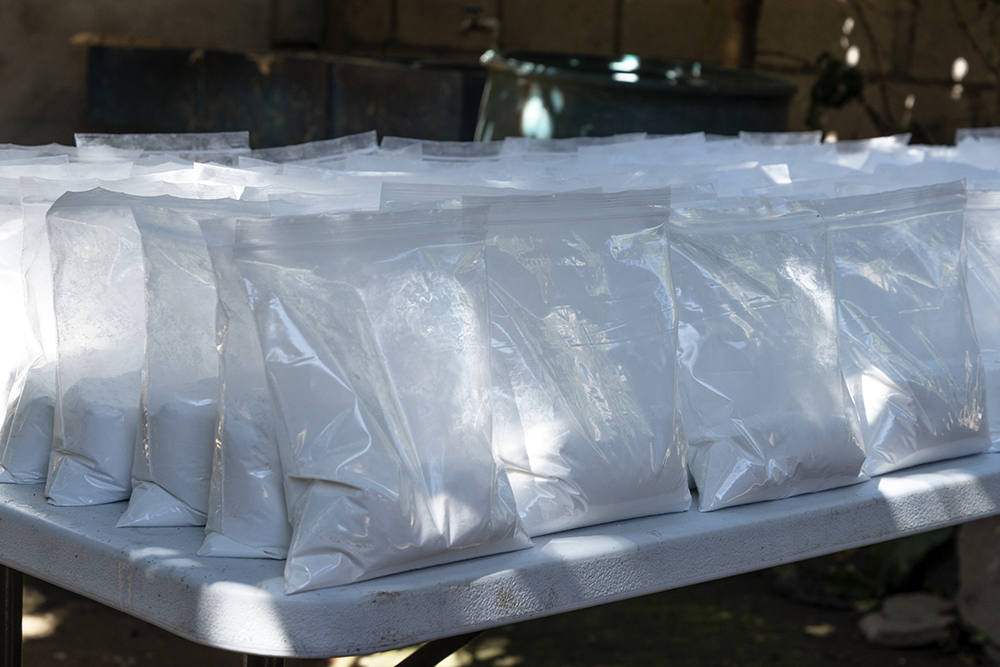
In My Brother’s House
2023 Installation view, San Juan Comalapa, Chimaltenango, Photo: Margo Porres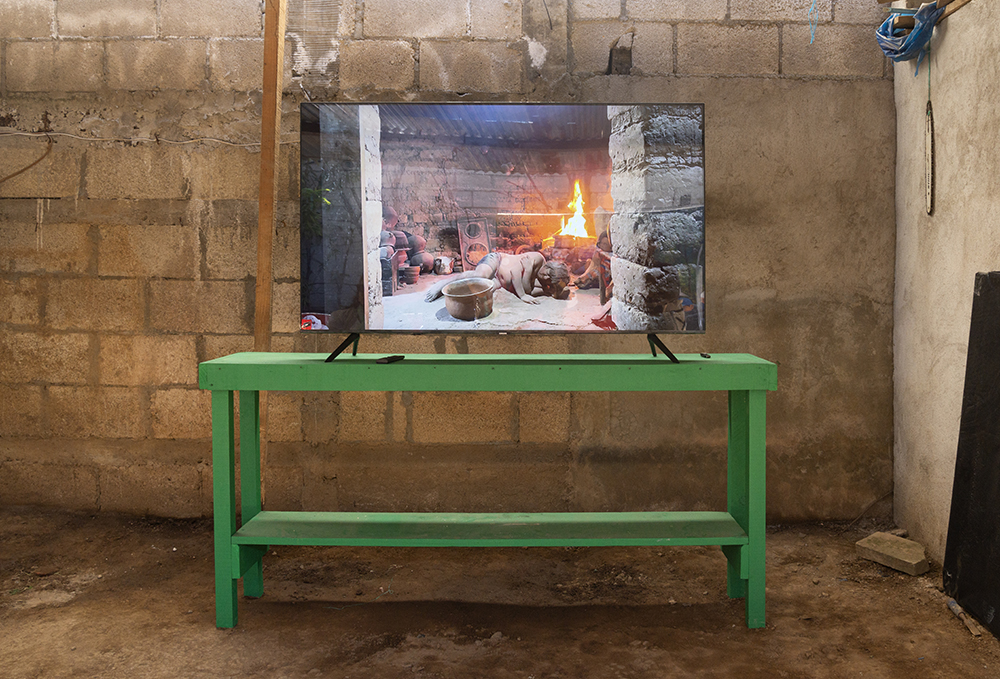
In My Brother’s House
2023 Installation view, San Juan Comalapa, Chimaltenango, Photo: Margo Porres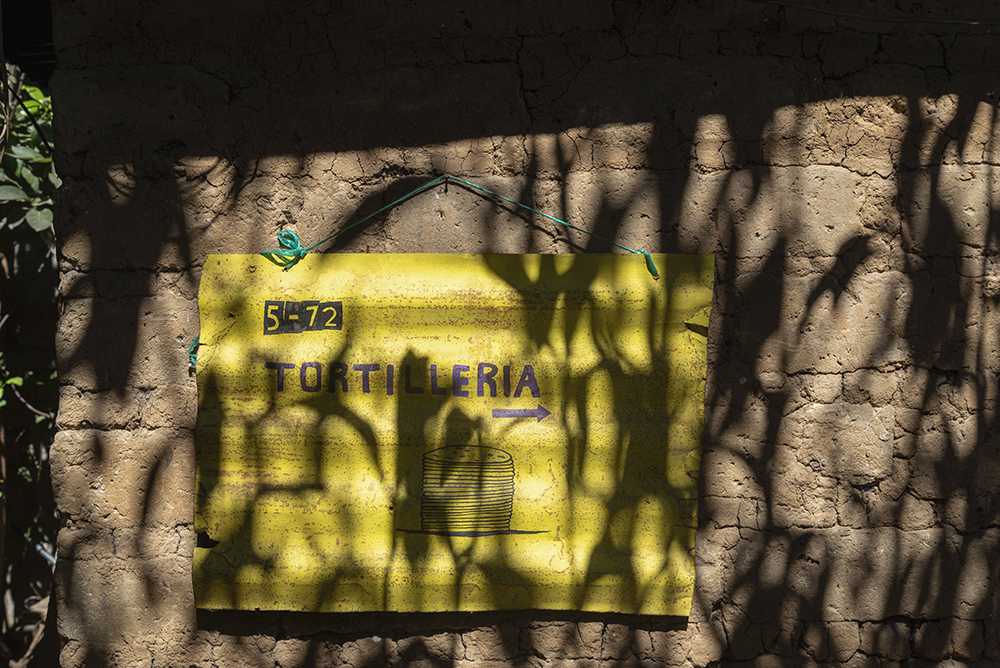
In My Brother’s House
2023 Installation view, San Juan Comalapa, Chimaltenango, Photo: Margo Porres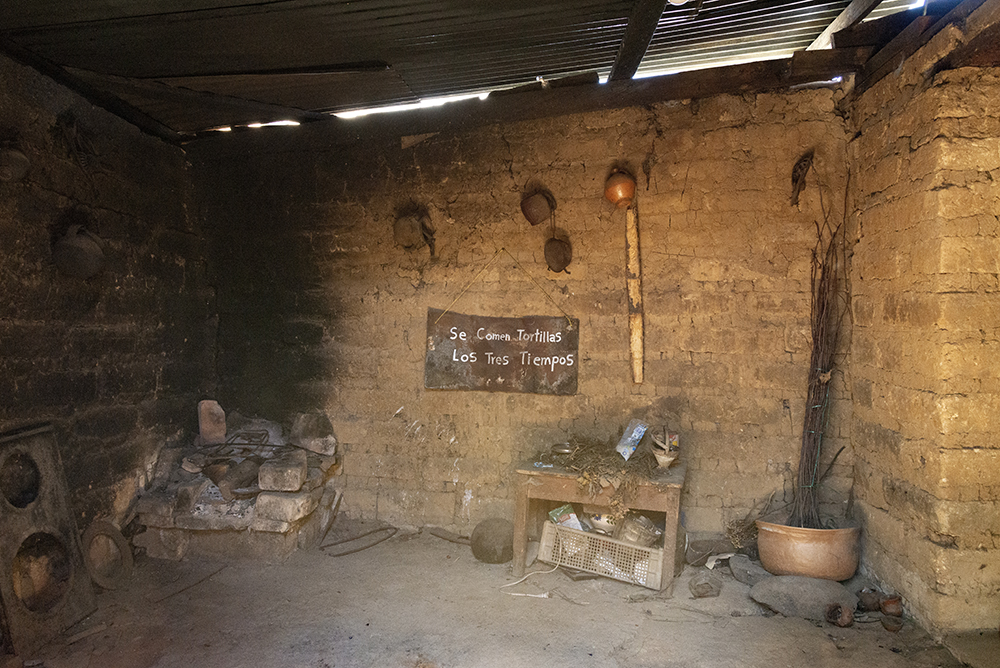
In My Brother’s House
2023 Installation view, San Juan Comalapa, Chimaltenango, Photo: Margo Porres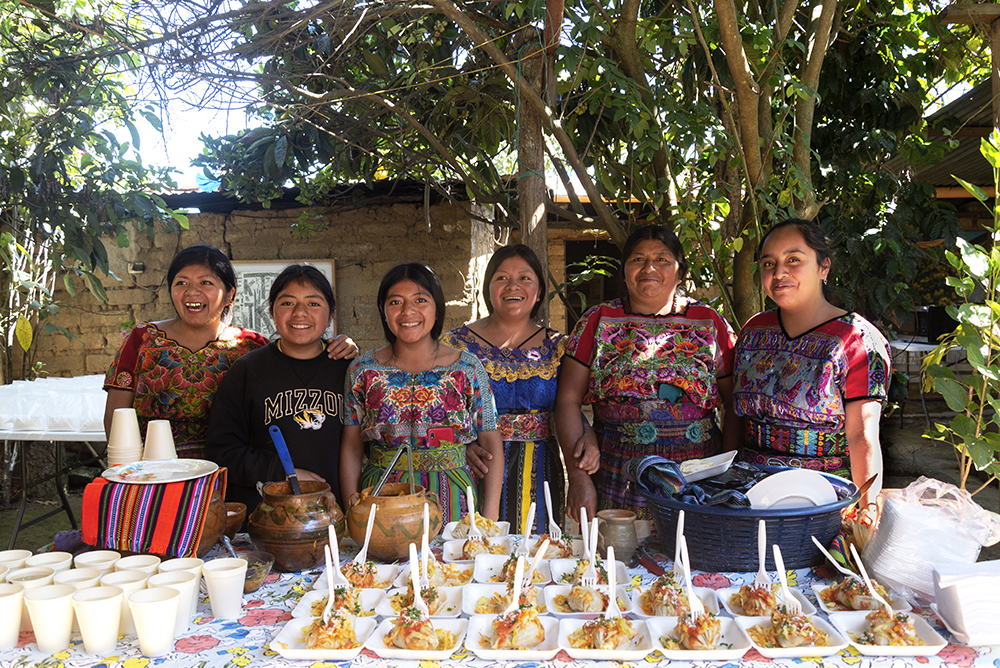
In My Brother’s House
2023 Installation view, San Juan Comalapa, Chimaltenango, Photo: Margo Porres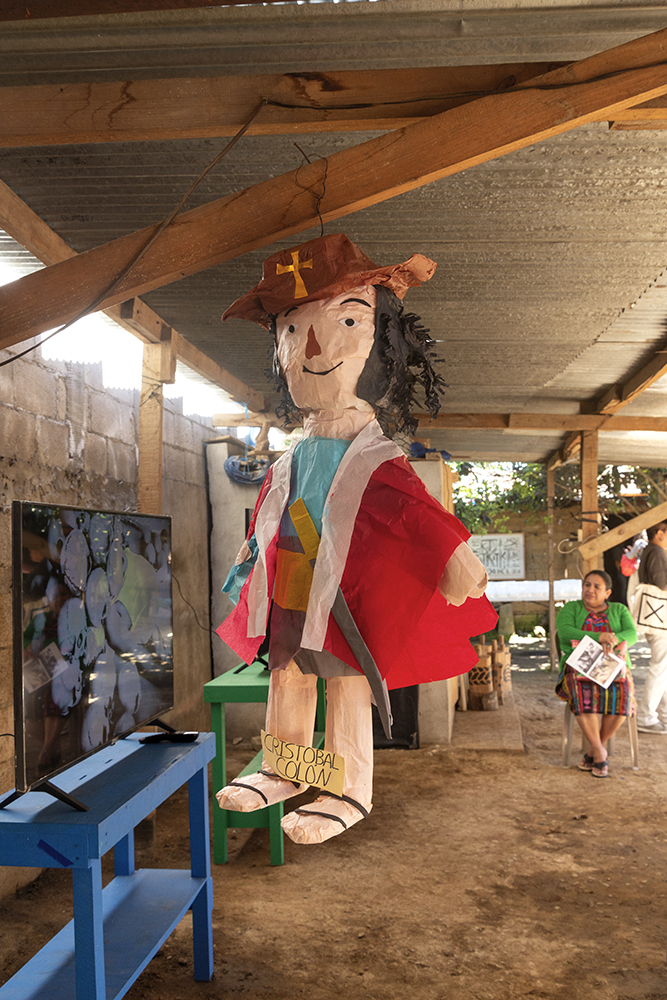
In My Brother’s House
2023 Installation view, San Juan Comalapa, Chimaltenango, Photo: Margo Porres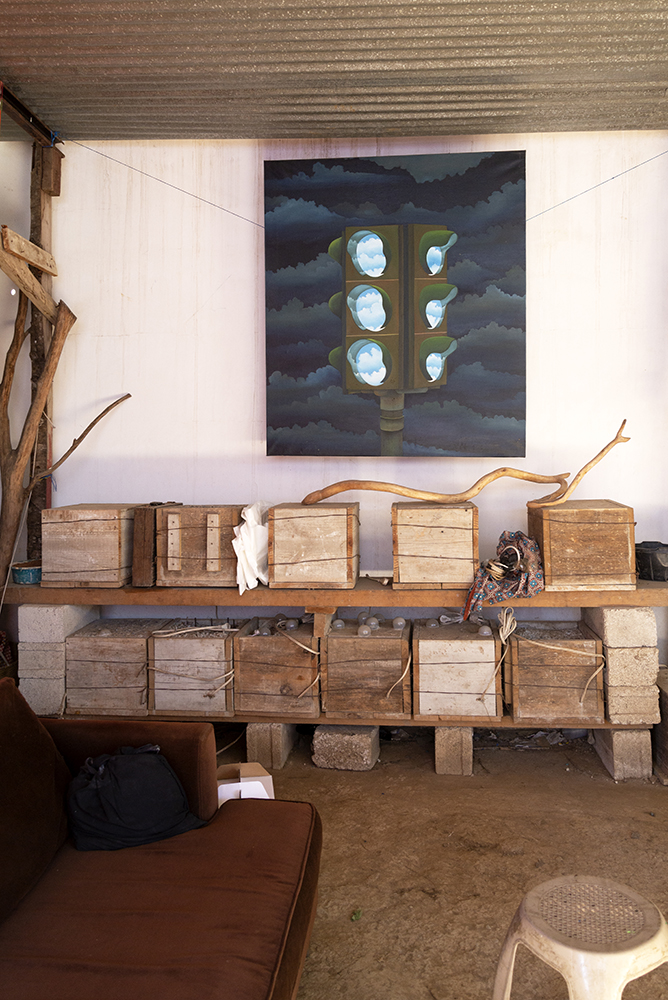
In My Brother’s House
2023 Installation view, San Juan Comalapa, Chimaltenango, Photo: Margo Porres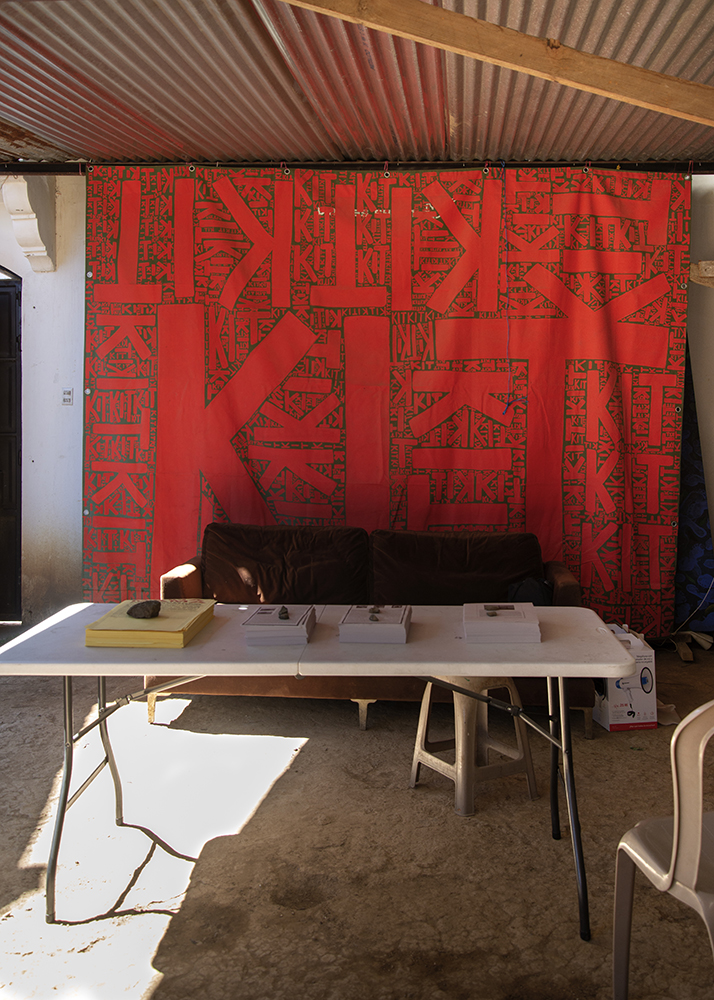
In My Brother’s House
2023 Installation view, San Juan Comalapa, Chimaltenango, Photo: Margo Porres
In My Brother’s House
2023 Installation view, San Juan Comalapa, Chimaltenango, Photo: Margo Porres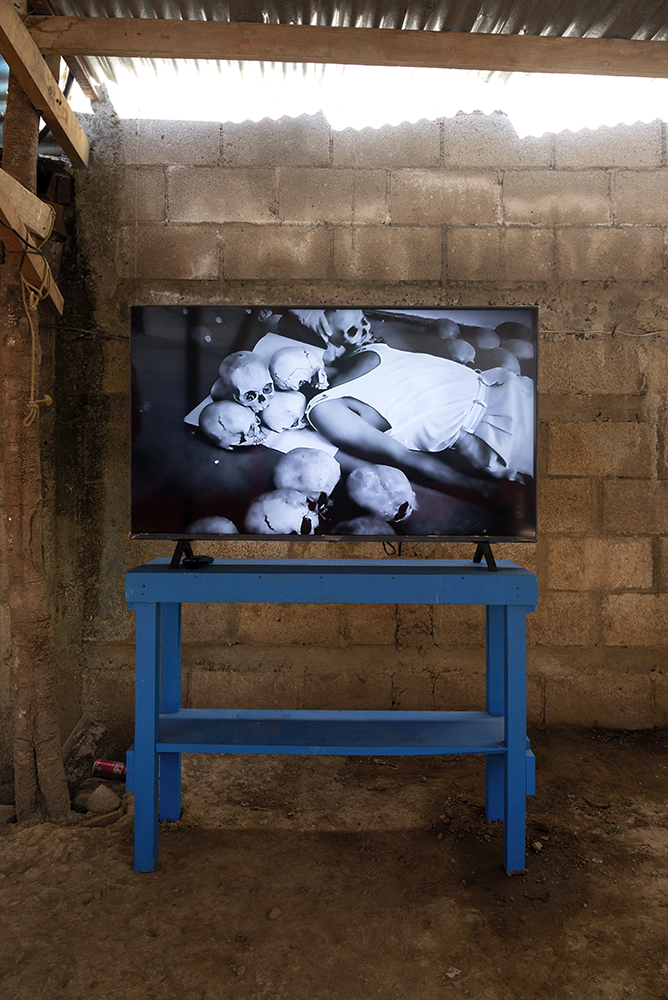
In My Brother’s House
2023 Installation view, San Juan Comalapa, Chimaltenango, Photo: Margo Porres
In My Brother’s House
2023 Installation view, San Juan Comalapa, Chimaltenango, Photo: Margo Porres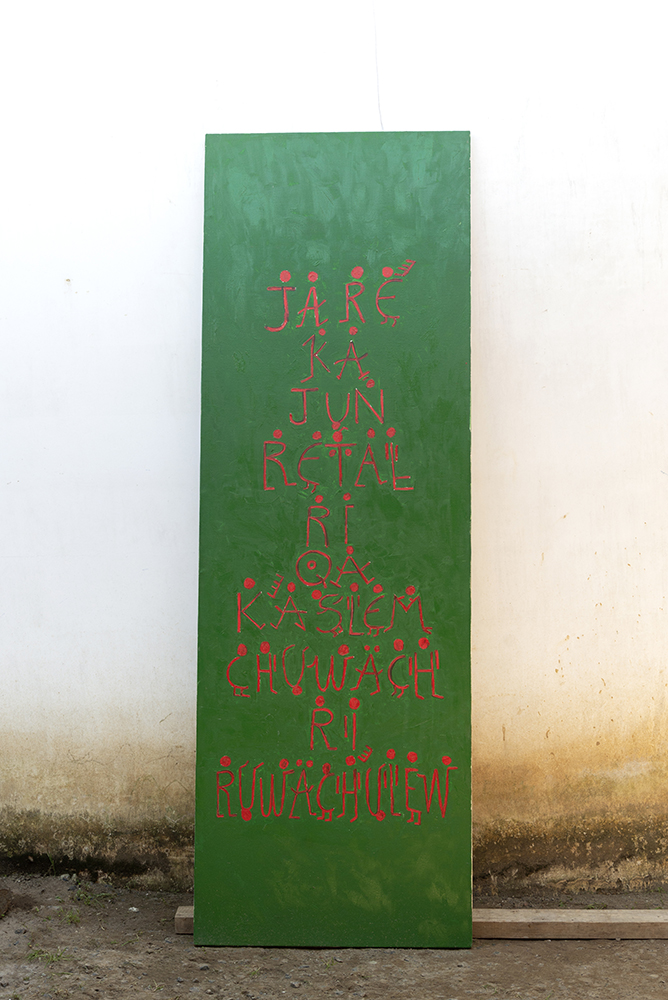
In My Brother’s House
2023 Installation view, San Juan Comalapa, Chimaltenango, Photo: Margo Porres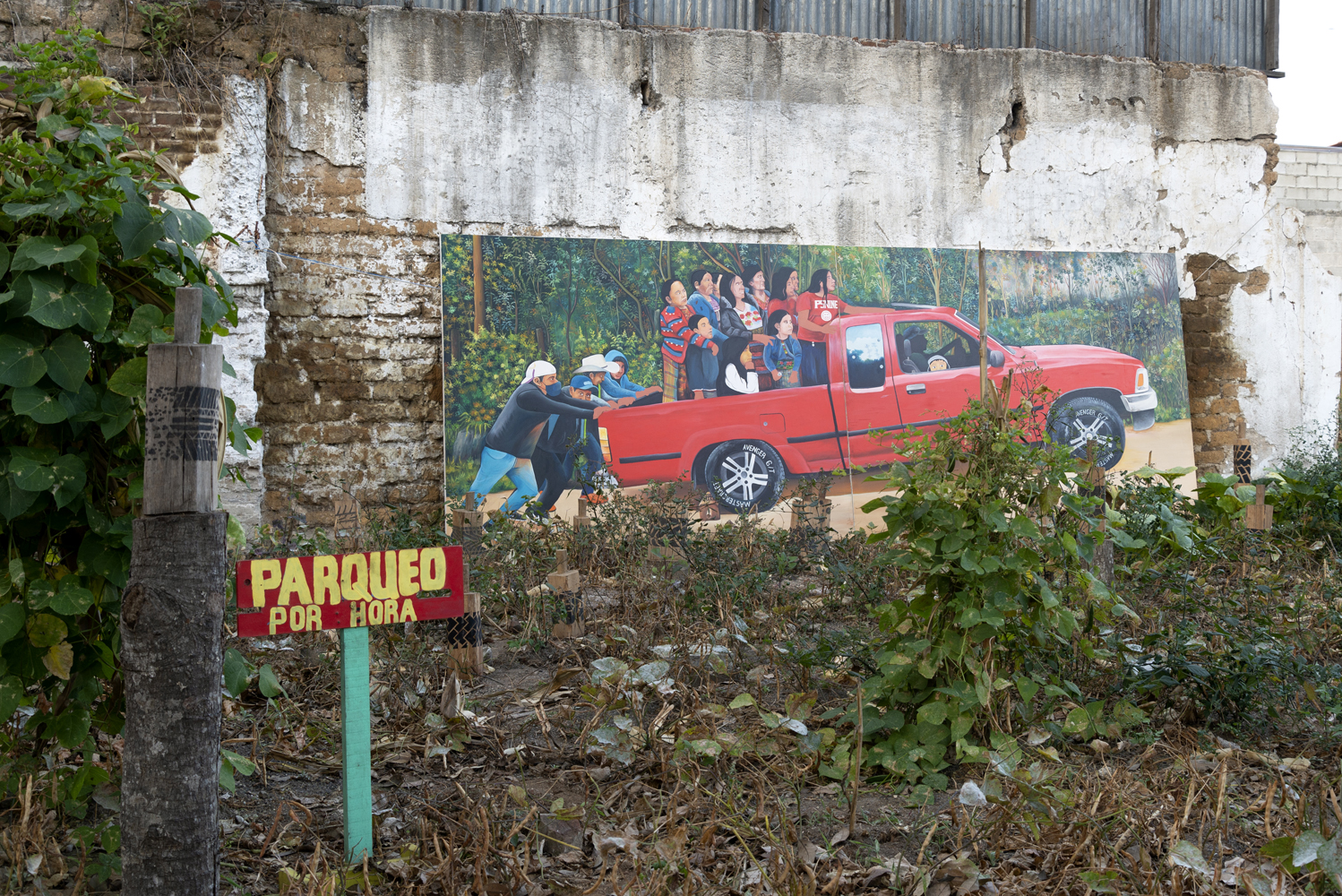
In My Brother’s House
2023 Installation view Proyectos Ultravioleta Guatemala City, Guatemala
In My Brother’s House
2023 Installation view Proyectos Ultravioleta Guatemala City, Guatemala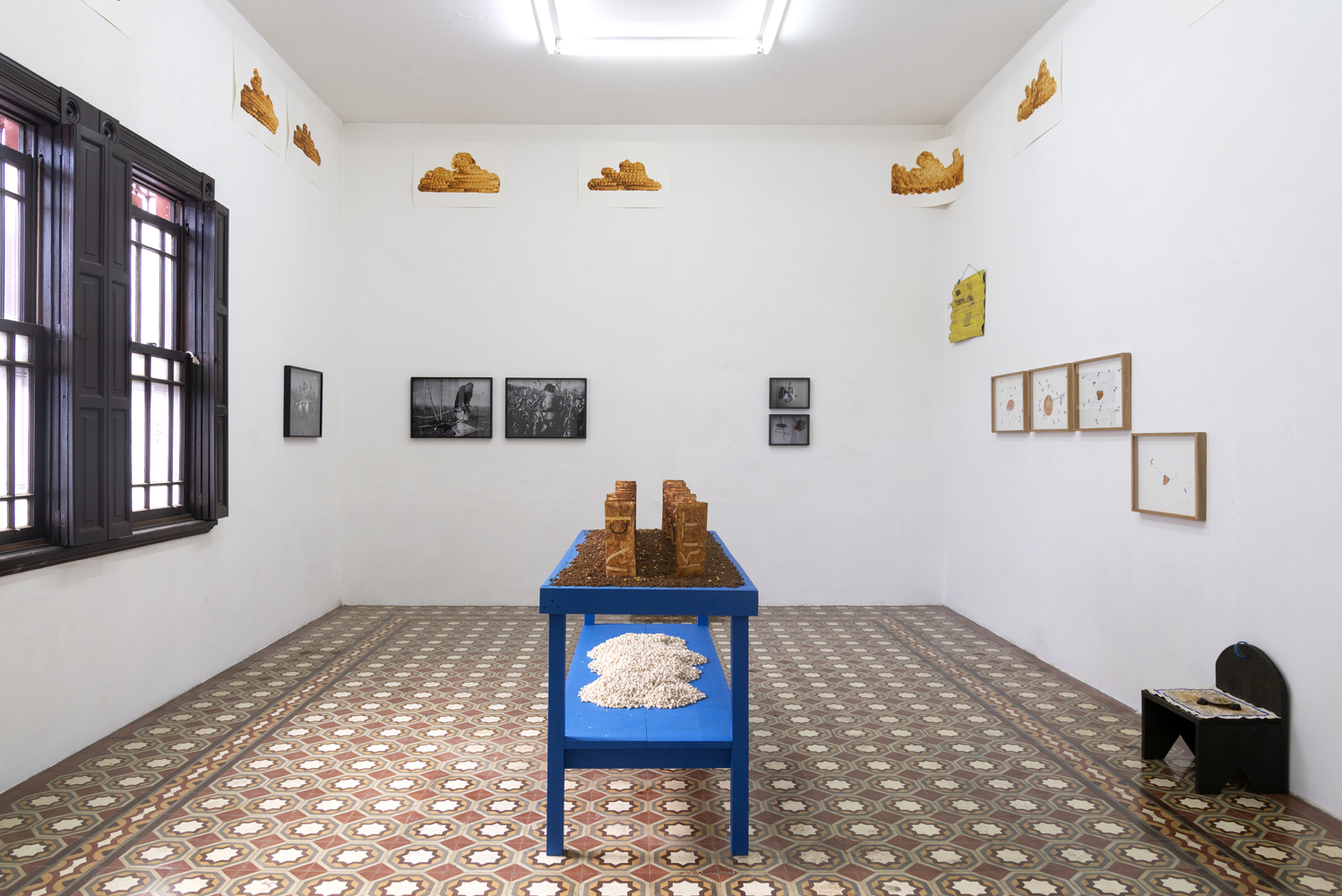
In My Brother’s House
2023 Installation view Proyectos Ultravioleta Guatemala City, Guatemala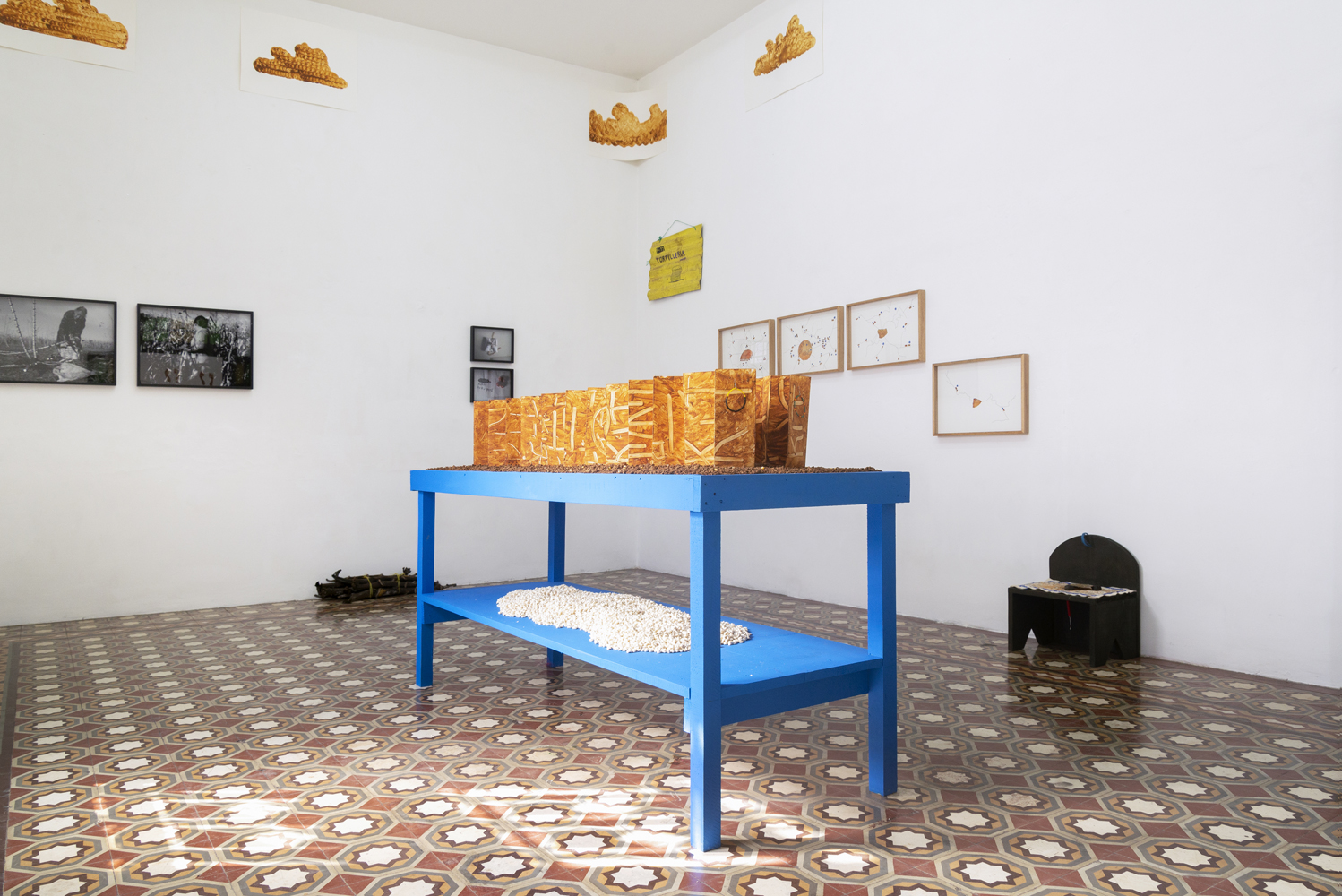
In My Brother’s House
2023 Installation view Proyectos Ultravioleta Guatemala City, Guatemala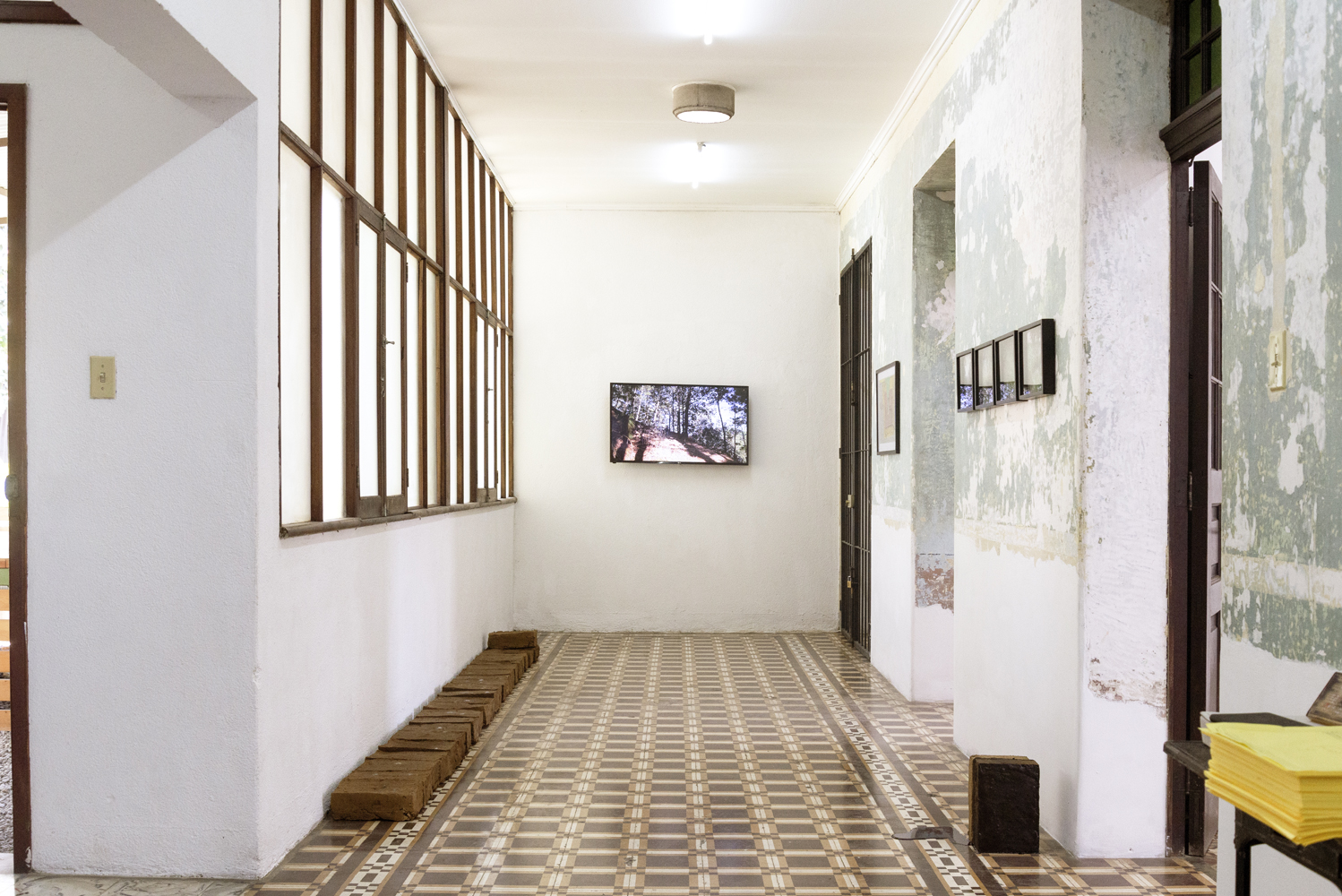
In My Brother’s House
2023 Installation view Proyectos Ultravioleta Guatemala City, Guatemala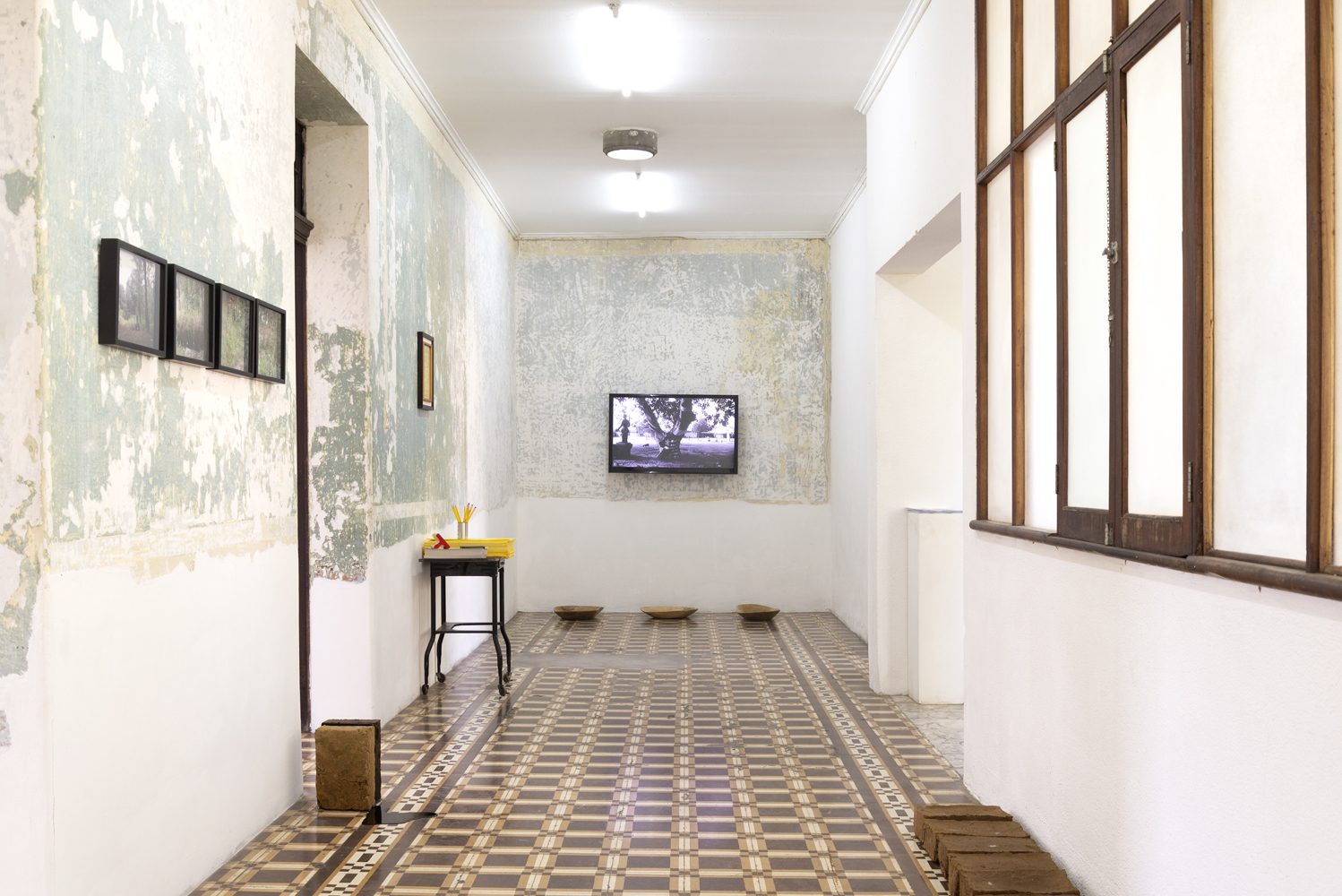
In My Brother’s House
2023 Installation view Proyectos Ultravioleta Guatemala City, Guatemala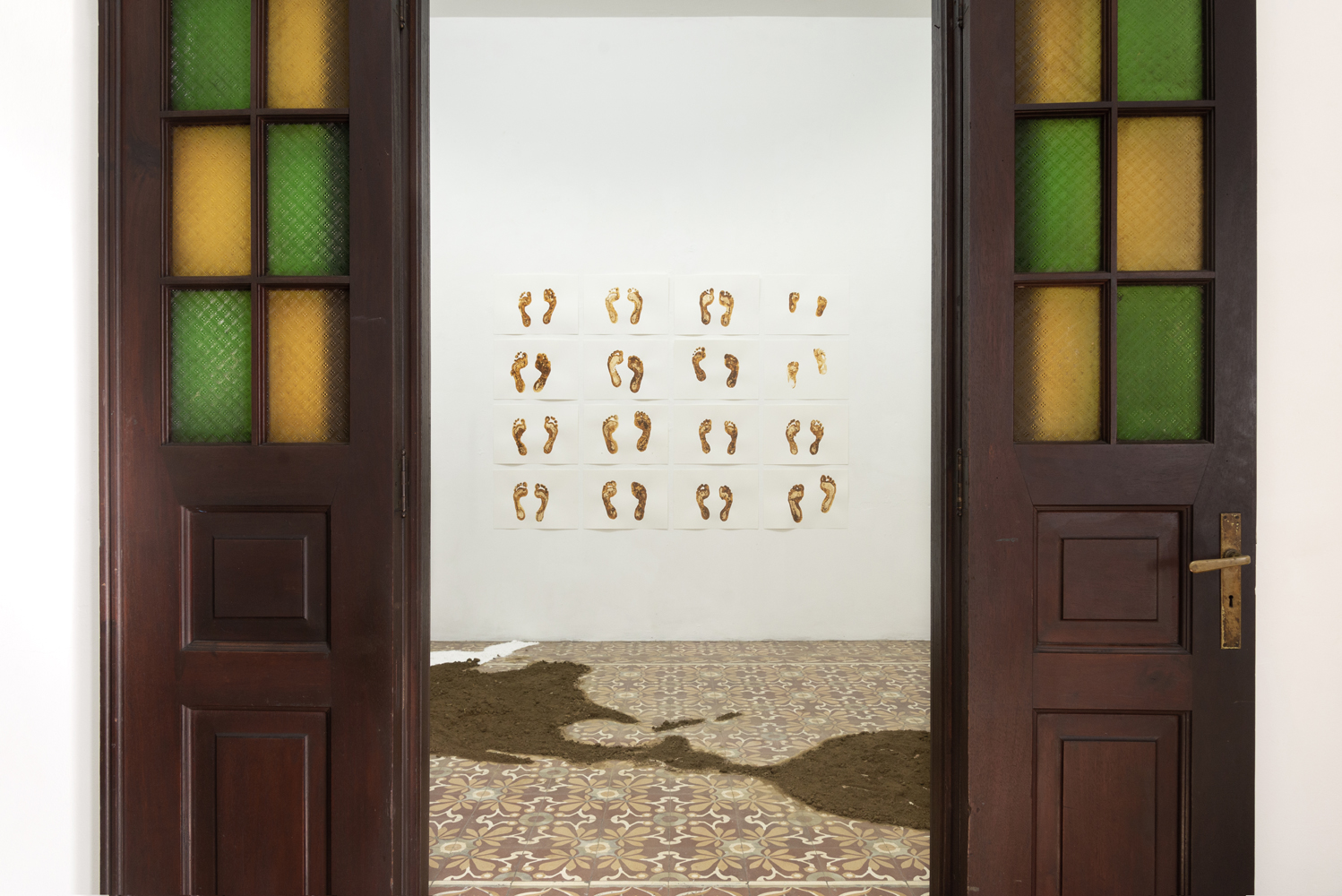
In My Brother’s House
2023 Installation view Proyectos Ultravioleta Guatemala City, Guatemala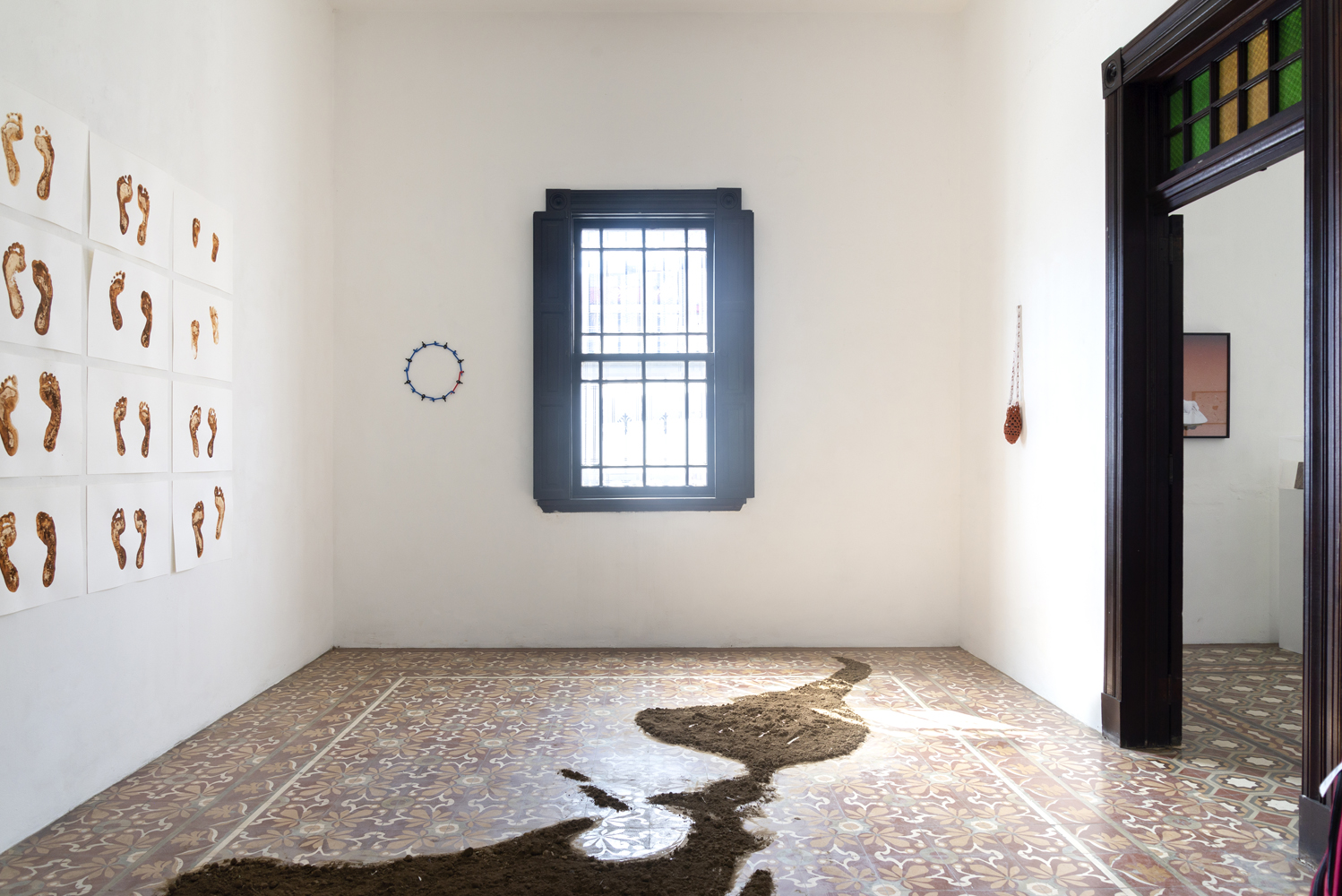
In My Brother’s House
2023 Installation view Proyectos Ultravioleta Guatemala City, Guatemala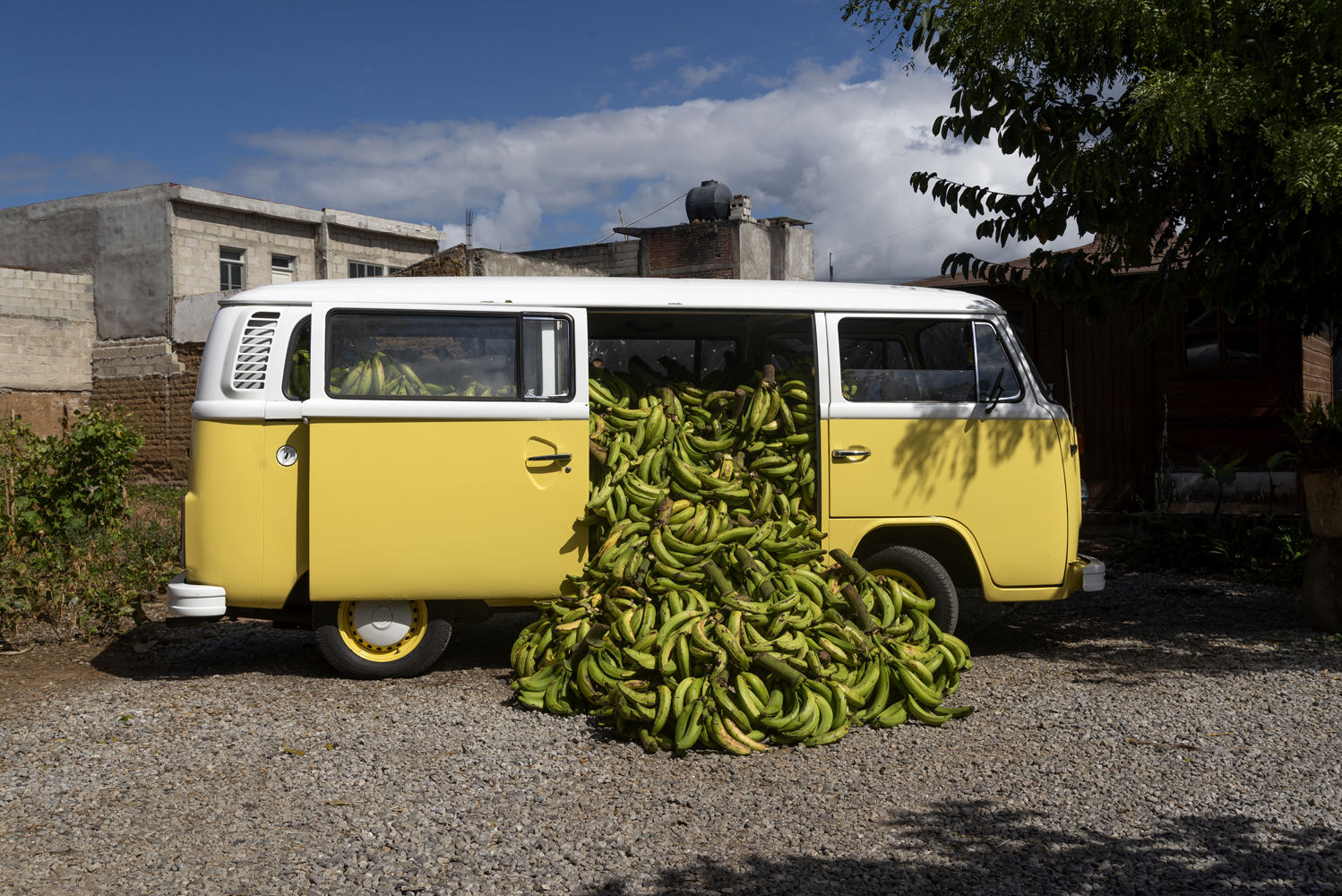
Banana Market / Art Market
Paulo Nazareth 2023 Vehicle and plantains 77.6 x 64.7 x 168.5 in
Sem título, da série Notícias de América (Untitled, from the series News from America)
Paulo Nazareth 2011/ 2012 Photo printing on cotton paper 18 x 23.6 in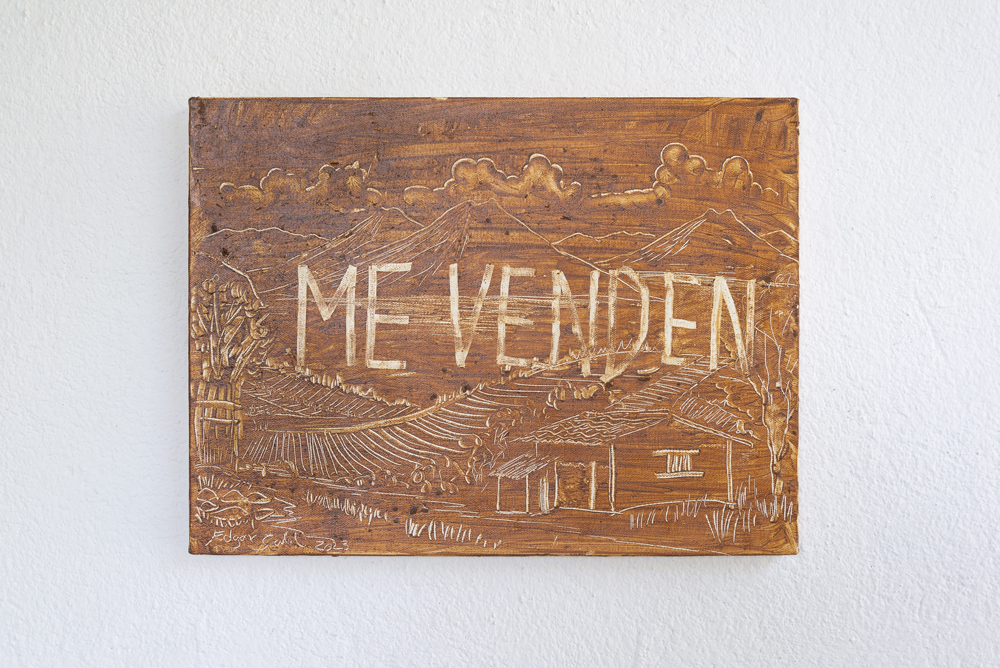
Me venden I (I Am Being Sold I)
Edgar Calel 2023 Natural pigment on canvas 14.96 x 20.07 in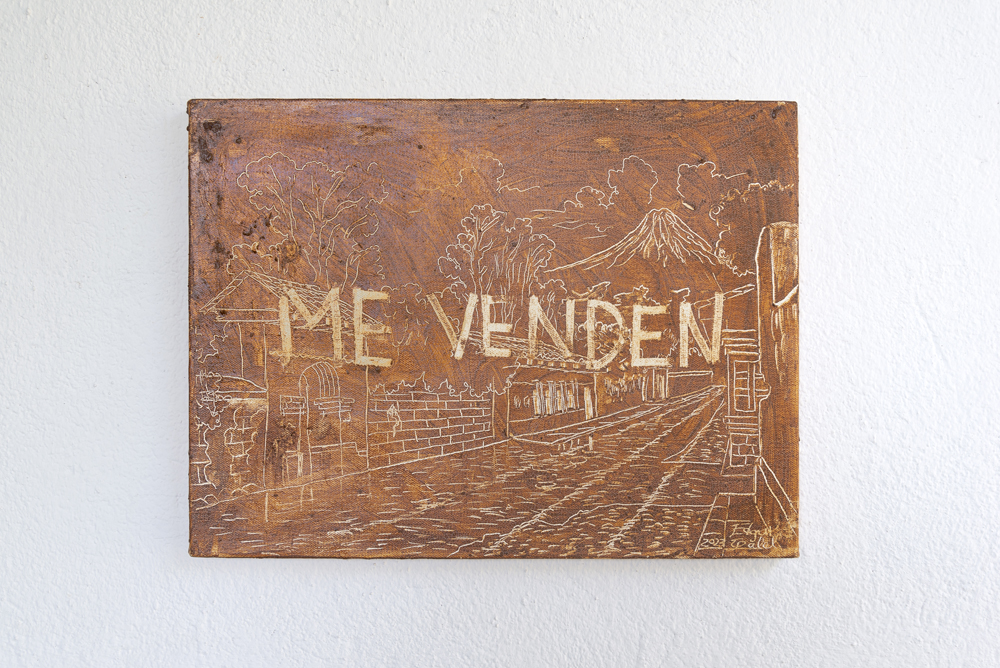
Me venden II (I Am Being Sold II)
Edgar Calel 2023 Natural pigment on canvas 14.96 x 20.07 in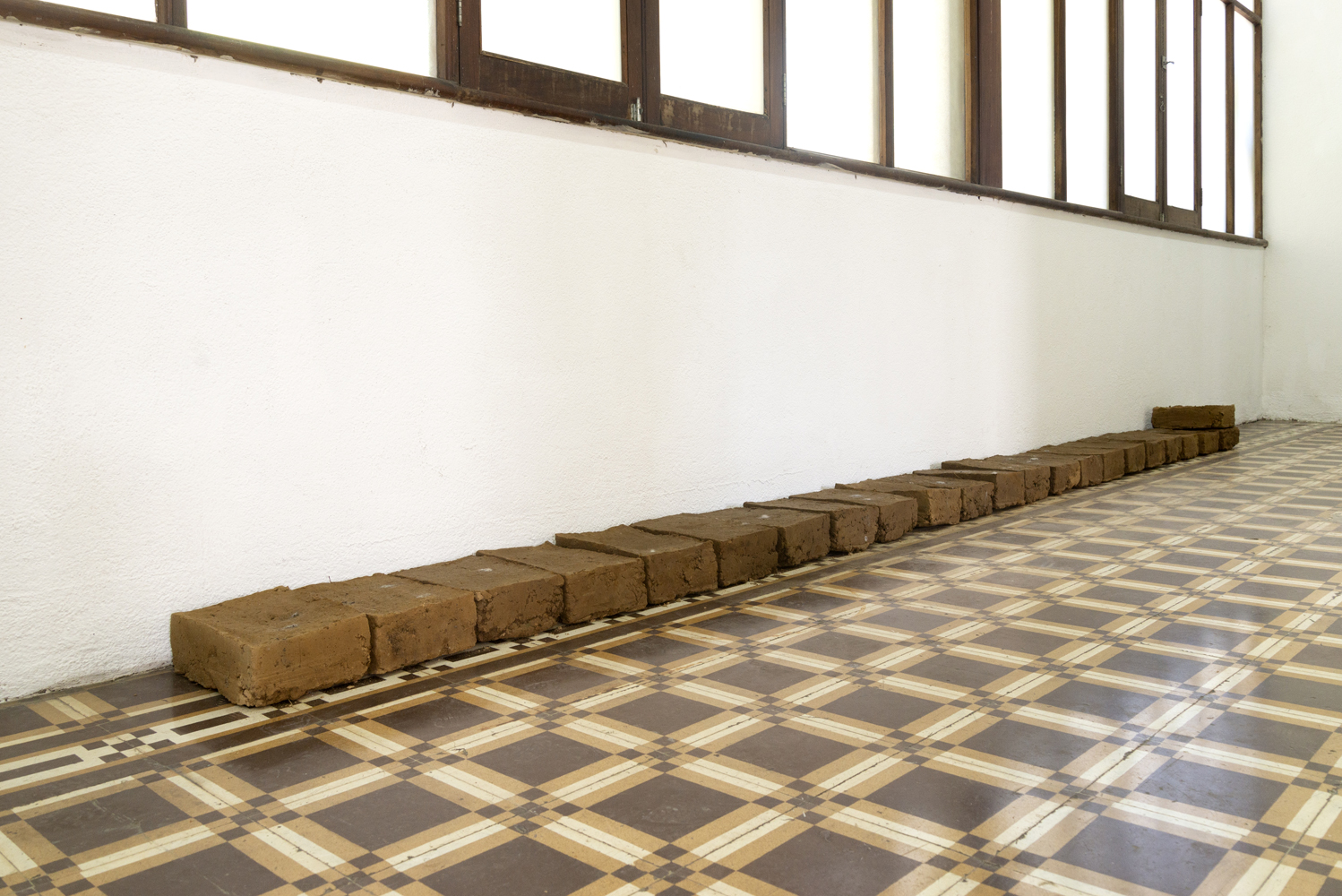
Sem titulo [Minimalismo o fosa común] (Untitled [Minimalism or mass grave])
Paulo Nazareth 2023 Adobe with soil from the dictatorship’s clandestine cemetery 11 x 164.5 x 10.4 in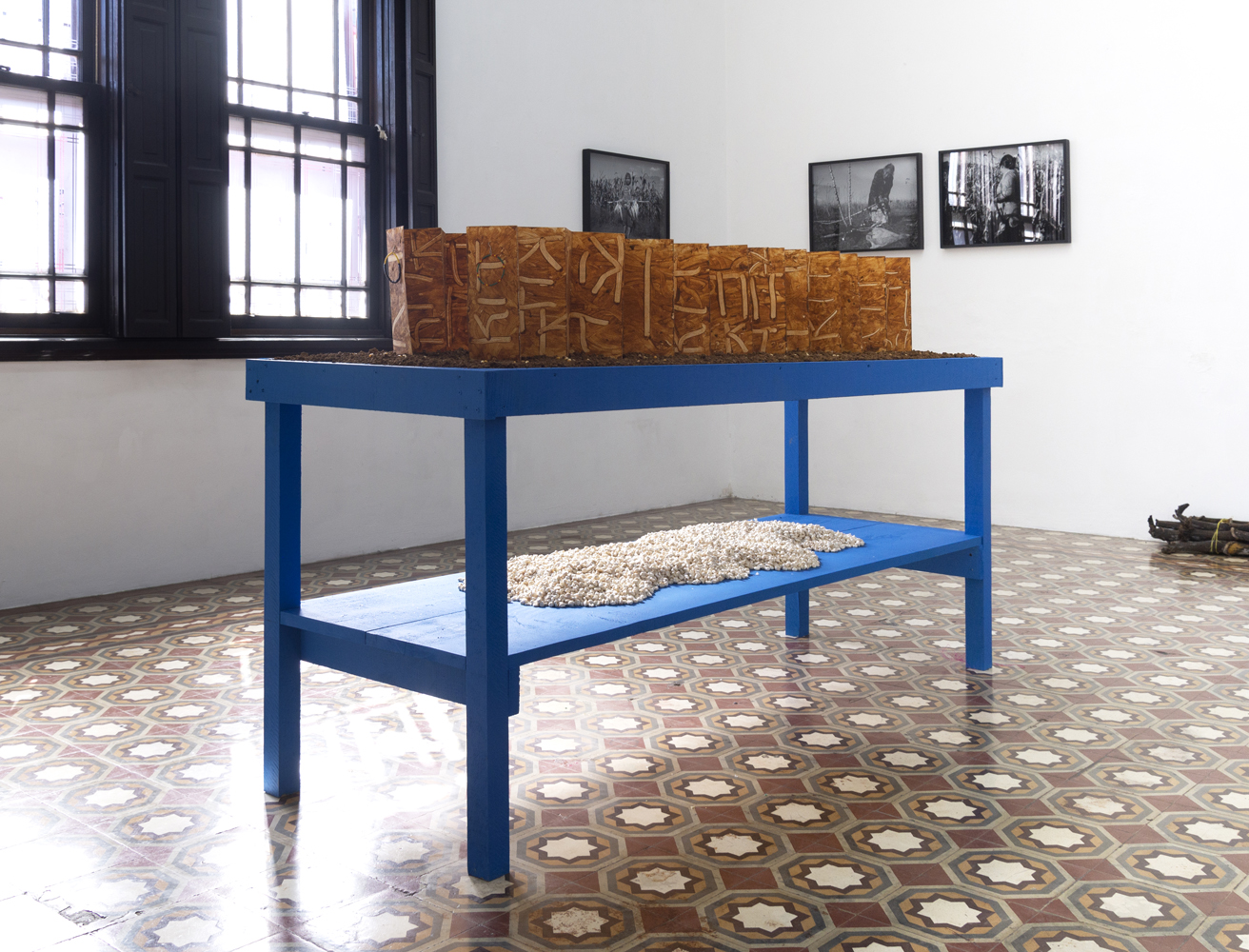
Kai Atit (Two Grandmothers)
Edgar Calel 2023 Natural pigment on cotton paper 43.3 x 26.25 x 74 in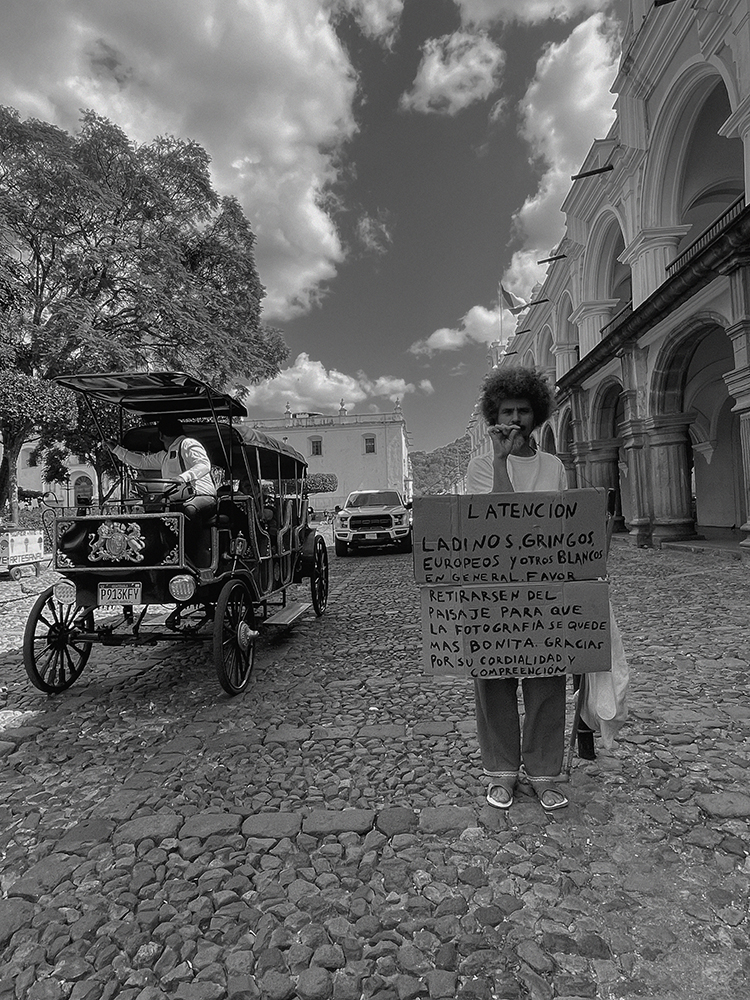
In My Brother’s House
Paulo Nazareth 2023 Photo printing on cotton paper 26.2 x 19.6 in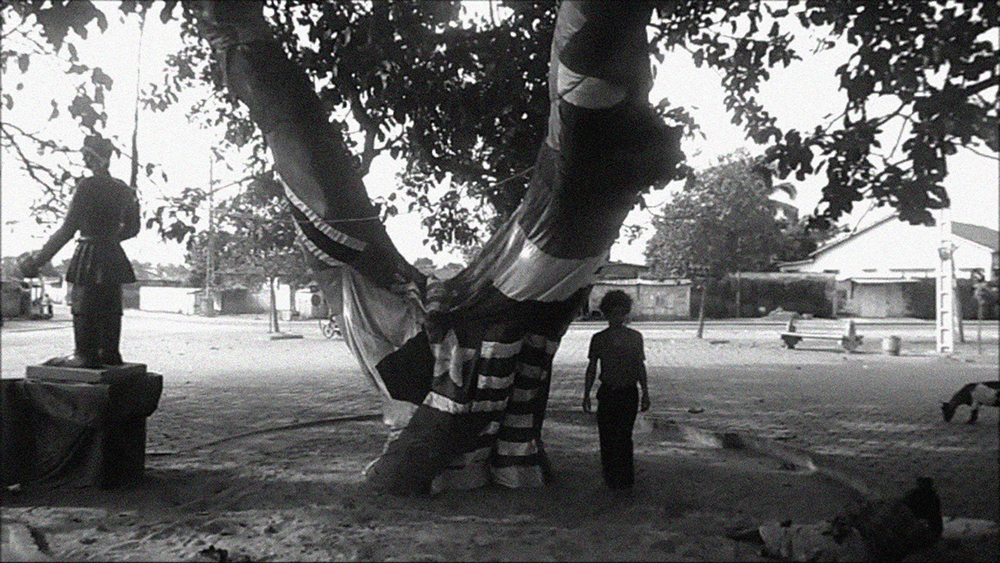
L’arbre d’oublier (The Tree of Forgetting)
Paulo Nazareth 2013 Single-channel video 27:30 min.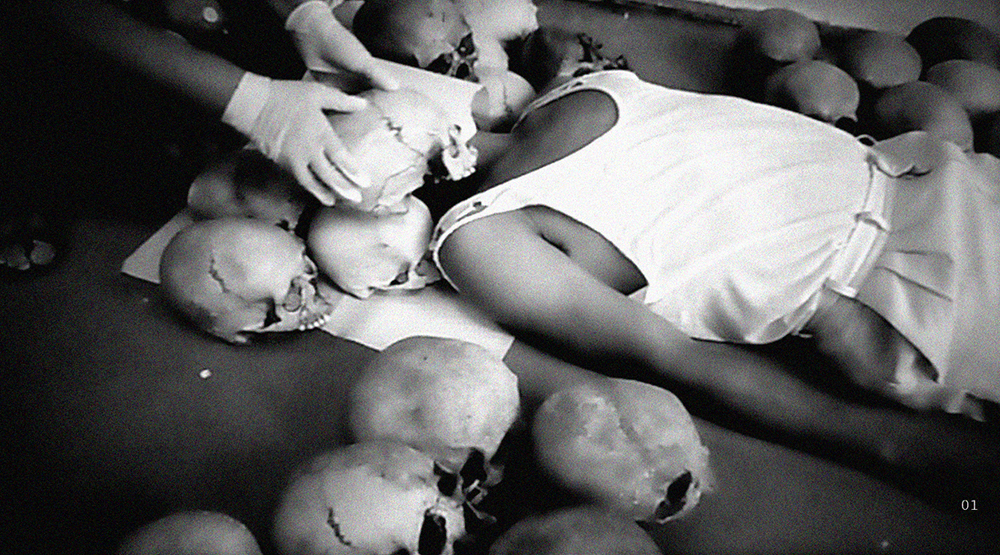
Antropologia do negro I
Paulo Nazareth 2014 Video performance 6:05 min.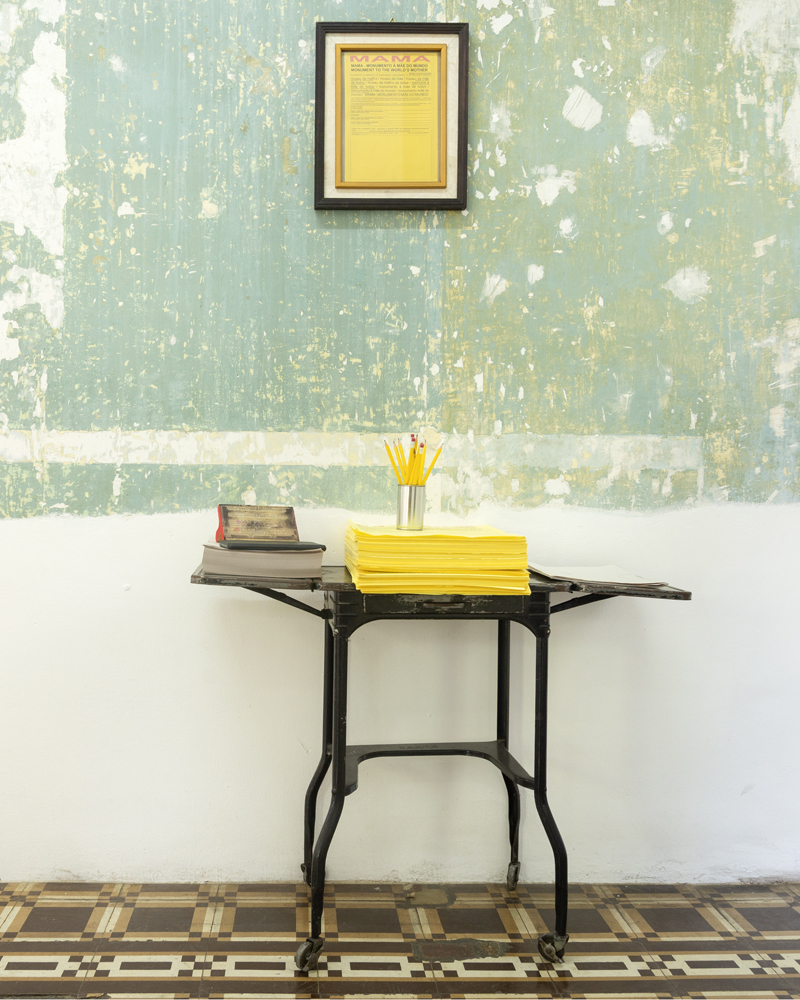
Monument to The World’s Mother
Paulo Nazareth 2023 Newspaper, colored paper, pencils, ink and stamp 70.9 x 35 x 17.5 in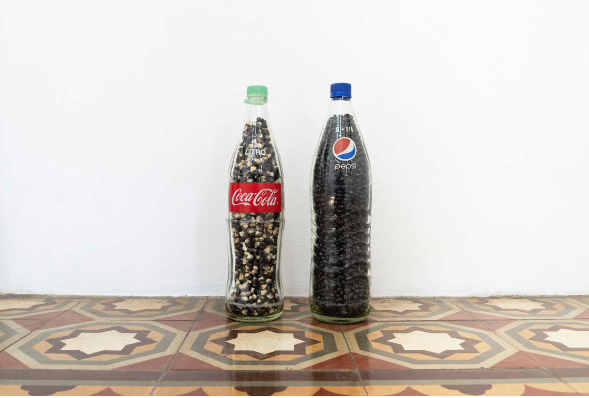
Untitled [Two identical bottles]
Paulo Nazareth 2023 Glass bottles, plastic, corn and bean 13.8 x 7.9 x 3.1 in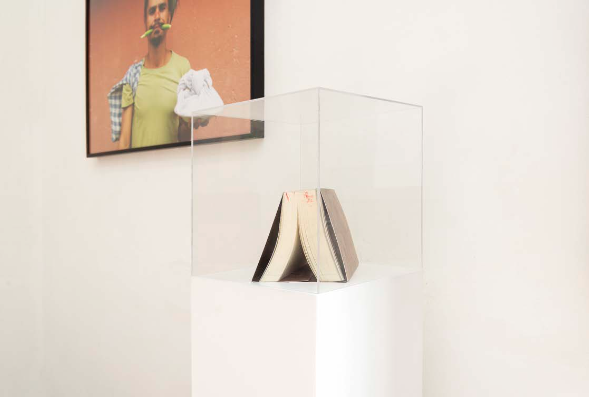
Apontamentos a aplavra verdadeira (Notes On The Real World)
Paulo Nazareth 2023 Book and thread 5.7 x 6.1 x 8.9 in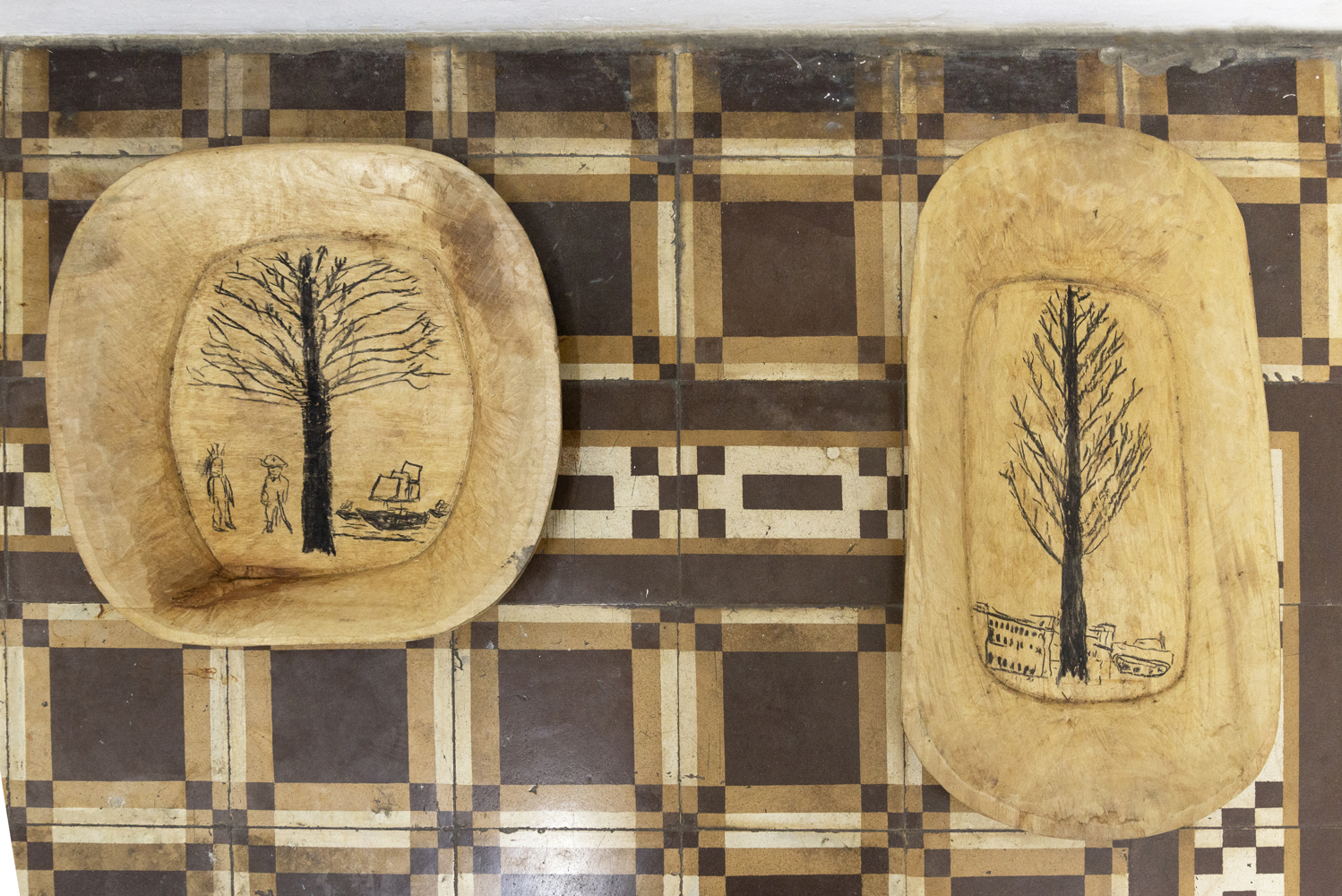
Araucaria
Paulo Nazareth 2023 Charcoal on wood 3.1 x 67.5 x 24 in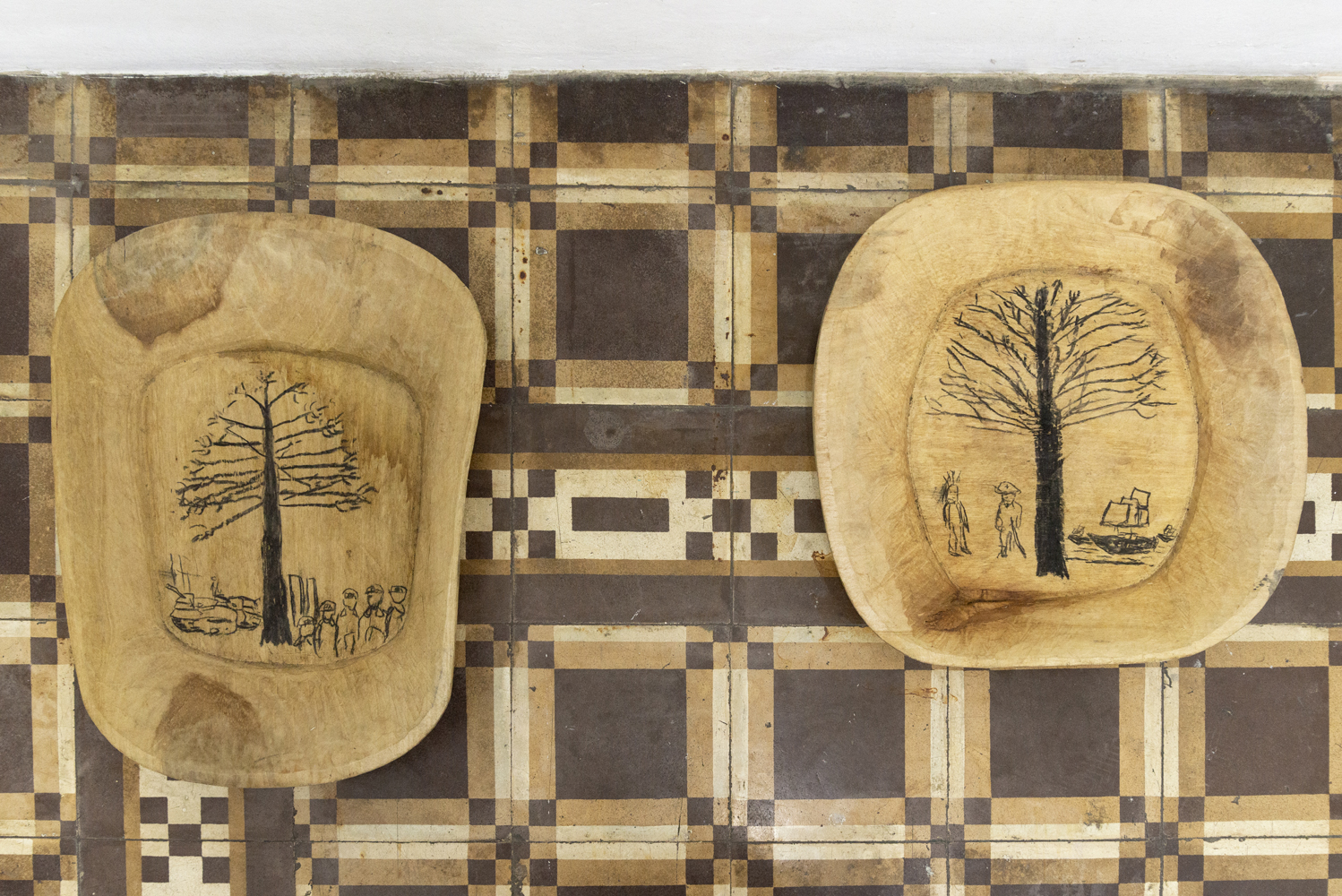
Araucaria
Paulo Nazareth 2023 Charcoal on wood 3.1 x 67.5 x 24 in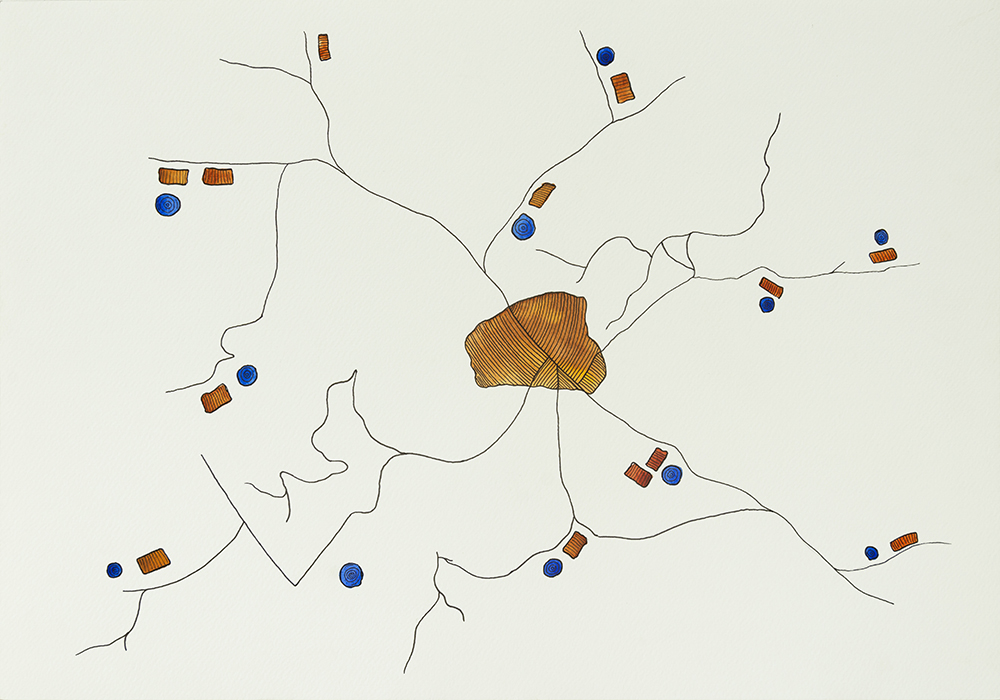
Ruchi tinamit Ruchi wäy, II (A la orilla del pueblo, a la orilla de la tortilla II)
Edgar Calel 2023 Watercolor and ink on cotton paper 13.78 x 19.69 in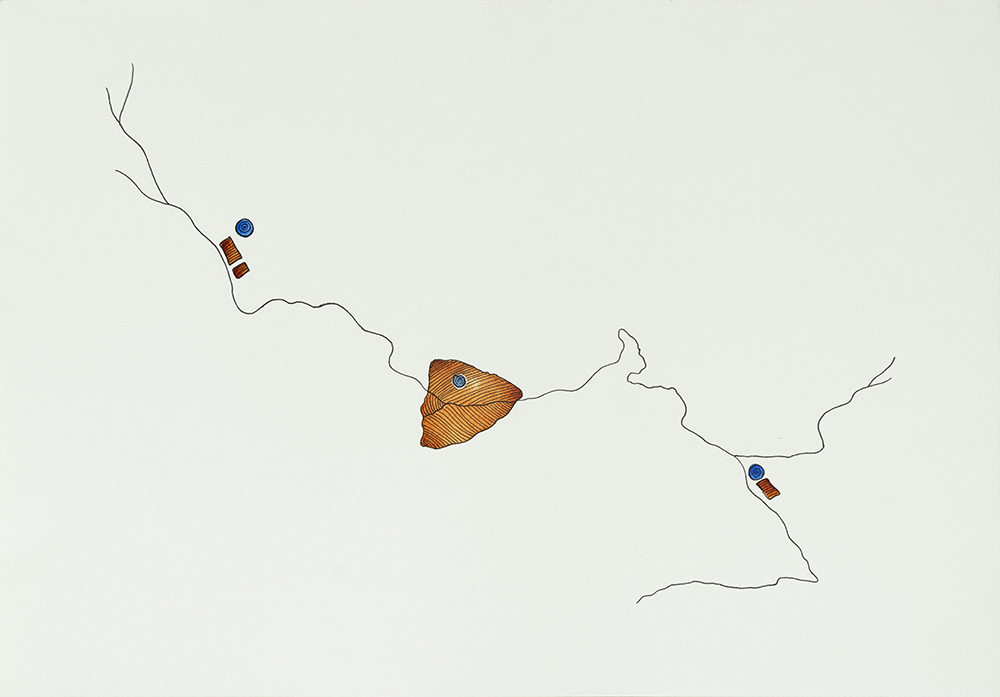
Ruchi tinamit Ruchi wäy III (A la orilla del pueblo, a la orilla de la tortilla III)
Edgar Calel 2023 Watercolor and ink on cotton paper 13.78 x 19.69 in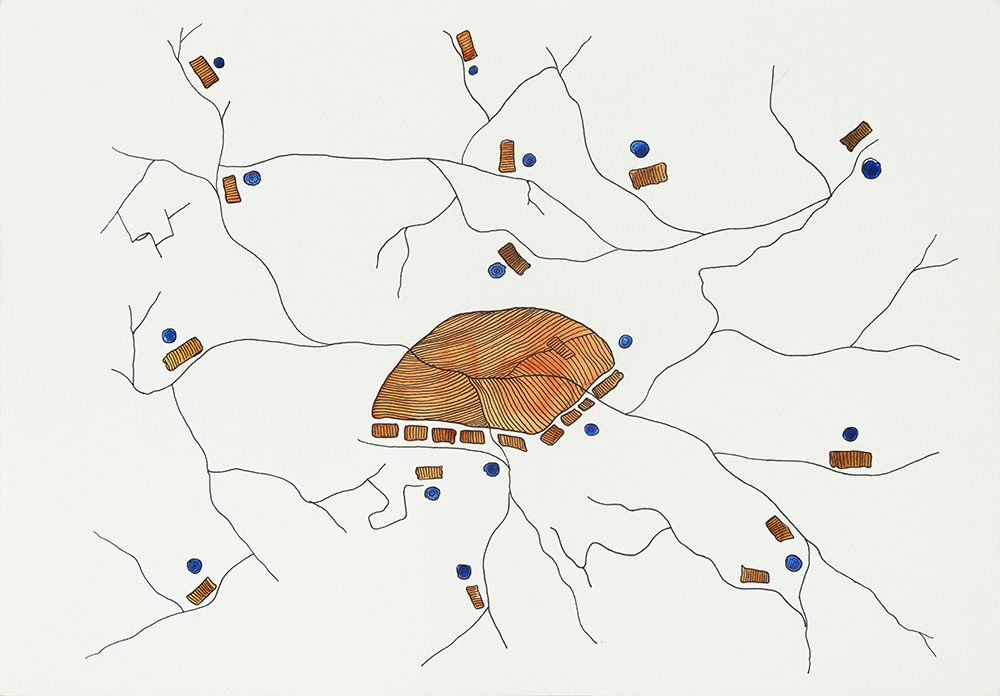
Ruchi tinamit Ruchi wäy, VII (A la orilla del pueblo, a la orilla de la tortilla VII)
Edgar Calel 2023 Watercolor and ink on cotton paper 13.78 x 19.69 in
Ruchi tinamit Ruchi wäy VIII (A la orilla del pueblo, a la orilla de la tortilla VIII)
Edgar Calel 2023 Watercolor and ink on cotton paper 13.78 x 19.69 in
In My Brother’s House
2023 Installation view Proyectos Ultravioleta Guatemala City, Guatemala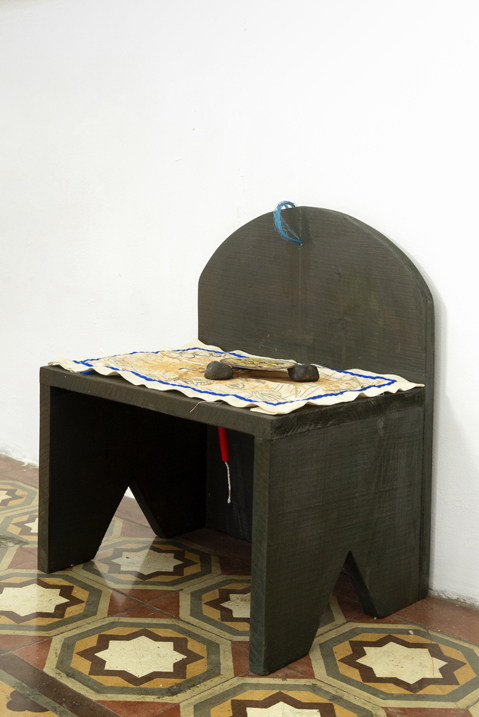
Ru Tee Jay (Mother of the House)
Edgar Calel 2023 Wooden chair, raw canvas, natural pigment, stones, wool, photographic print, candle and plastic string 19.69 x 15.75 x 12.8 in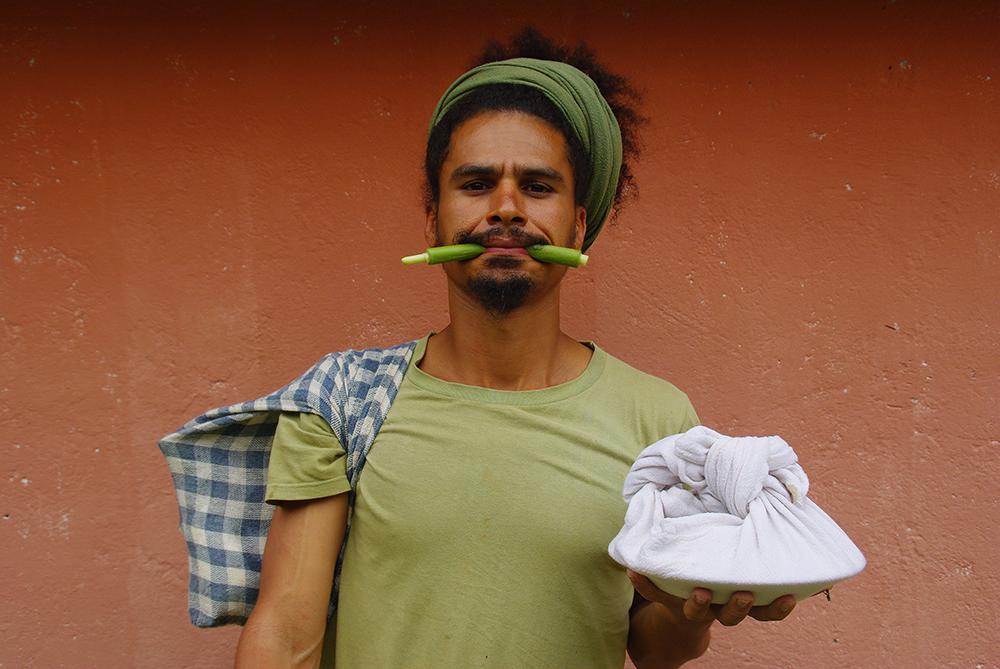
Untitled, From the Series Objects to Block the Sun From My Eyes
Paulo Nazareth 2010 Photo printing on cotton paper 23.6 x 35.4 in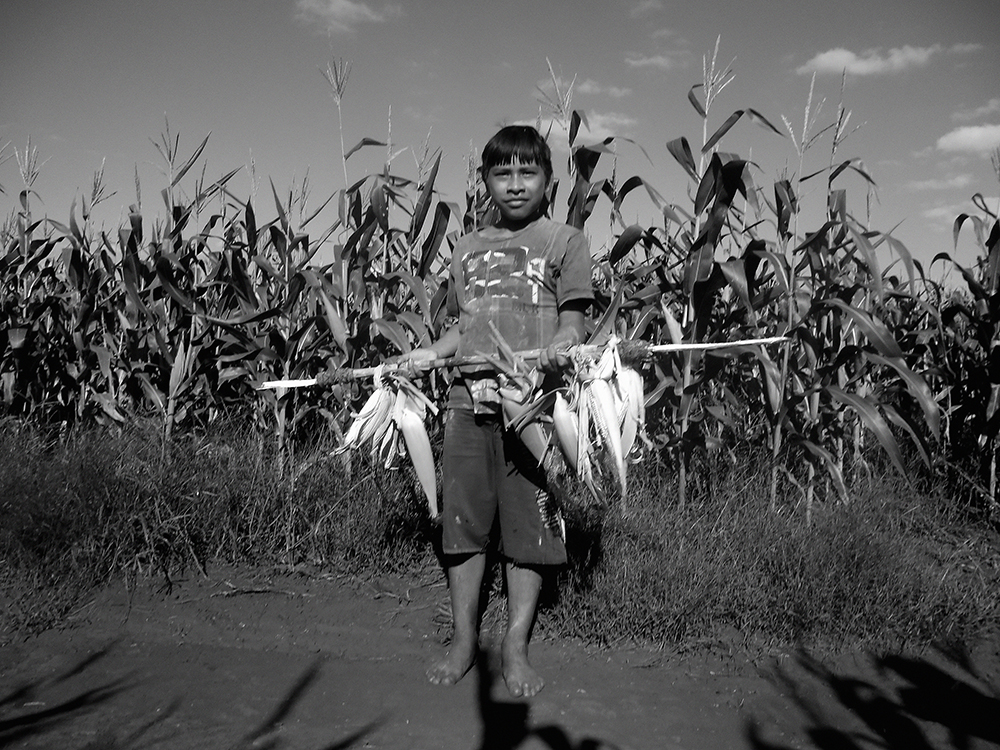
Untitled [Avati Mirim]
Paulo Nazareth 2013 Photo printing on cotton paper 18 x 23.6 in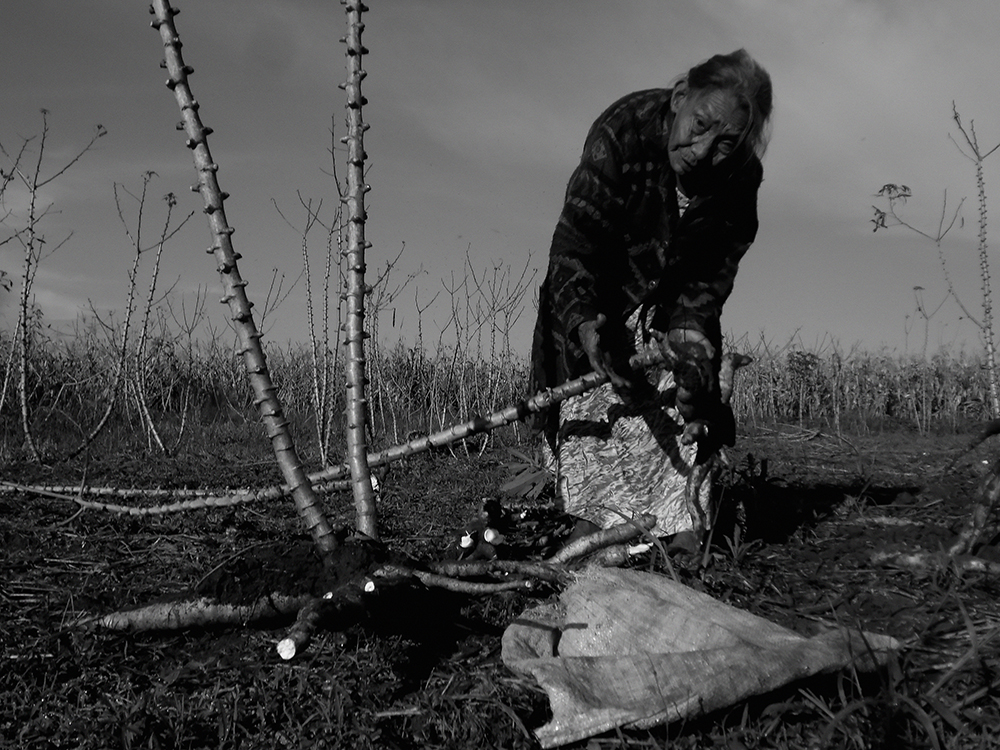
Untitled [Avati / Mani]
Paulo Nazareth 2013 Photo printing on cotton paper 18 x 23.6 in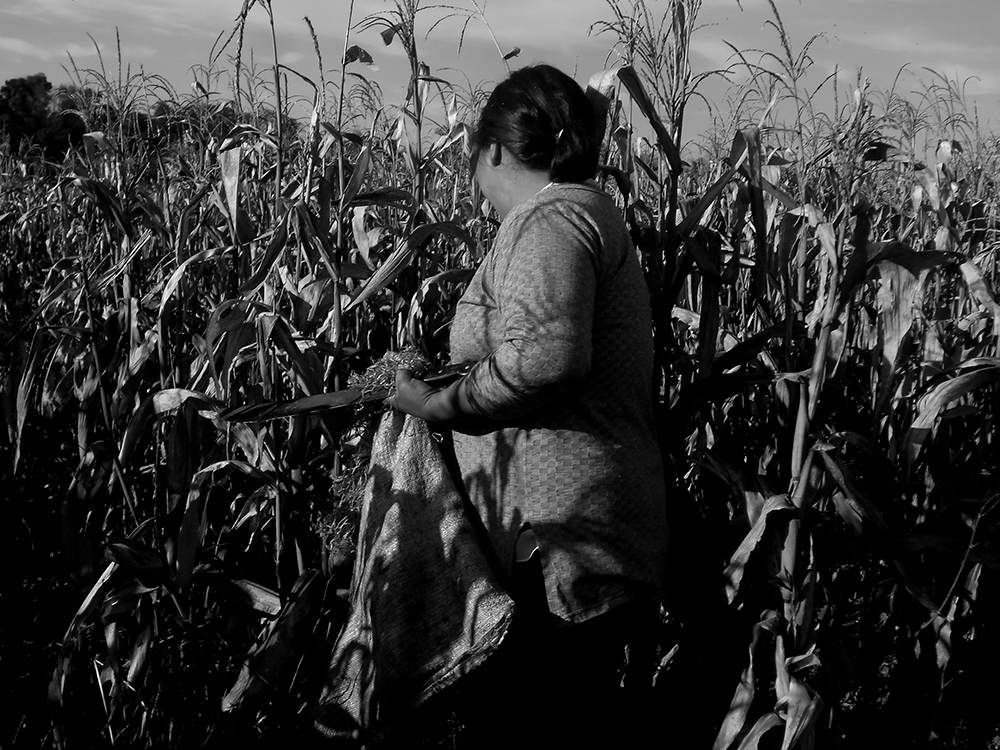
Untitled [Avati / Mani]
Paulo Nazareth 2013 Photo printing on cotton paper 18 x 23.6 in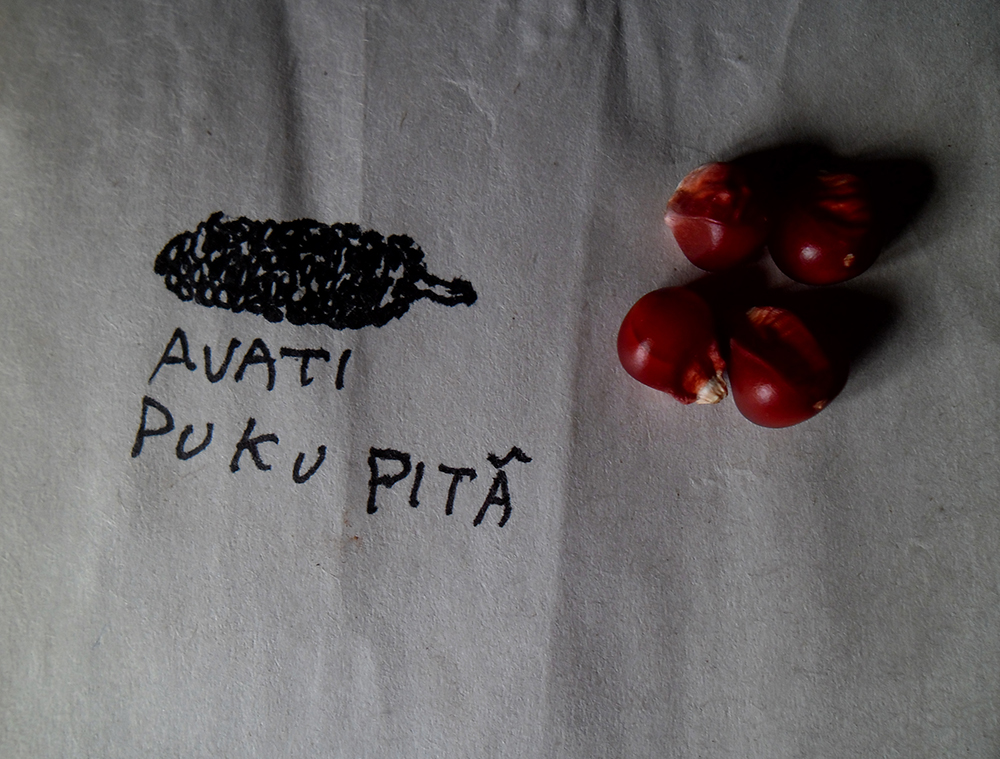
Untitled [Avati Puku Pitã]
Paulo Nazareth 2012 Photo printing on cotton paper 8.6 x 11.4 in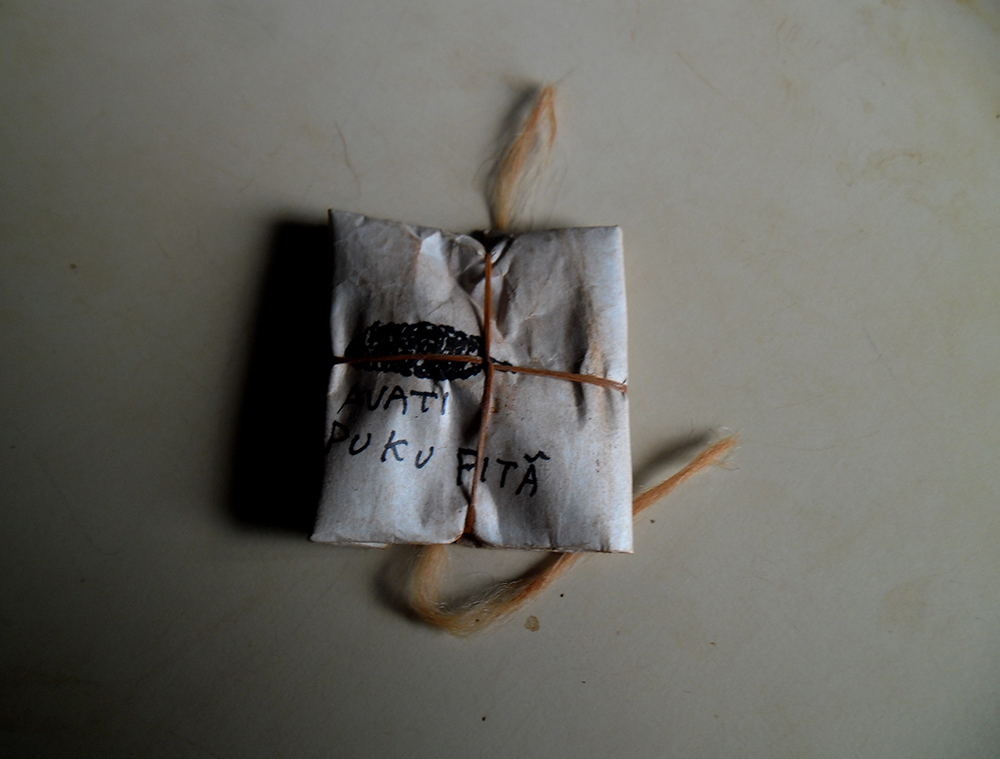
Untitled [Avati Puku Pitã]
Paulo Nazareth 2012 Photo printing on cotton paper 8.6 x 11.4 in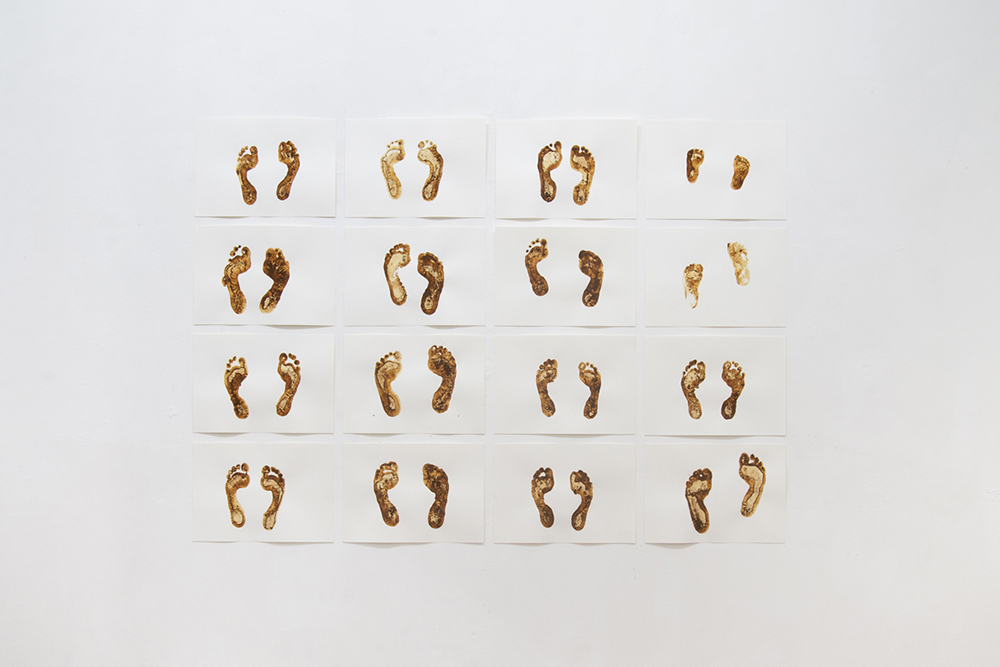
Retal Qa K’aslemac (The Trace of Life)
Edgar Calel 2023 Natural pigment on cotton paper 59 x 82.68 in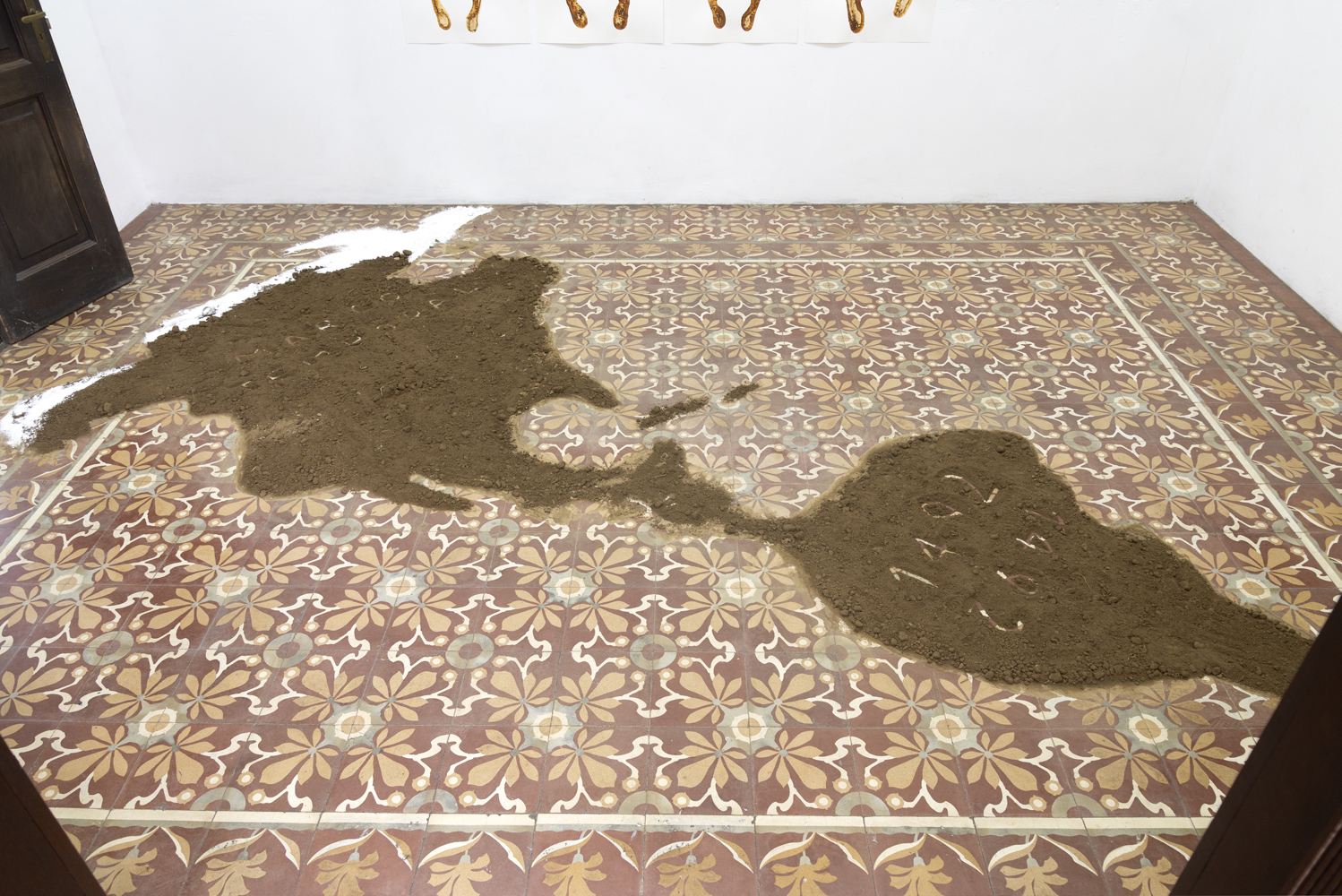
Marco Temporal
Paulo Nazareth 2023 Dirt and lime powder installation 128.3 x 90.9 in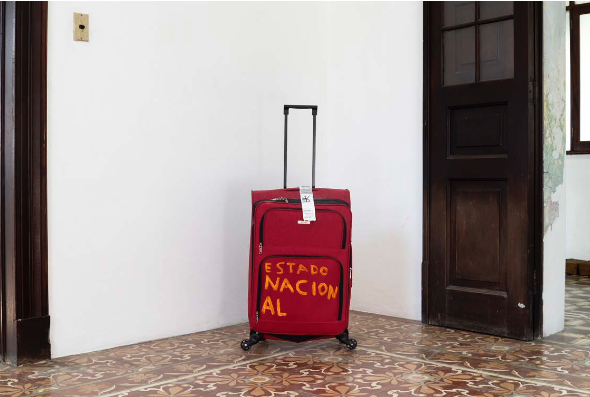
Estado Nacional
Paulo Nazareth 2023 Suitcase, lime and tapioca powder 41.3 x 16.4 x 9.8 in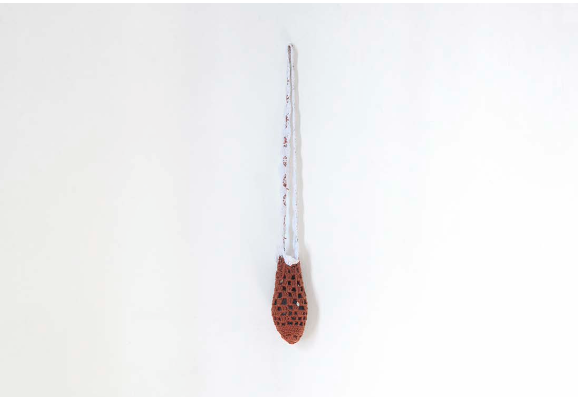
Cacao
Paulo Nazareth 2023 Crochet and cacao pod 27 x 3.1 x 3.3 in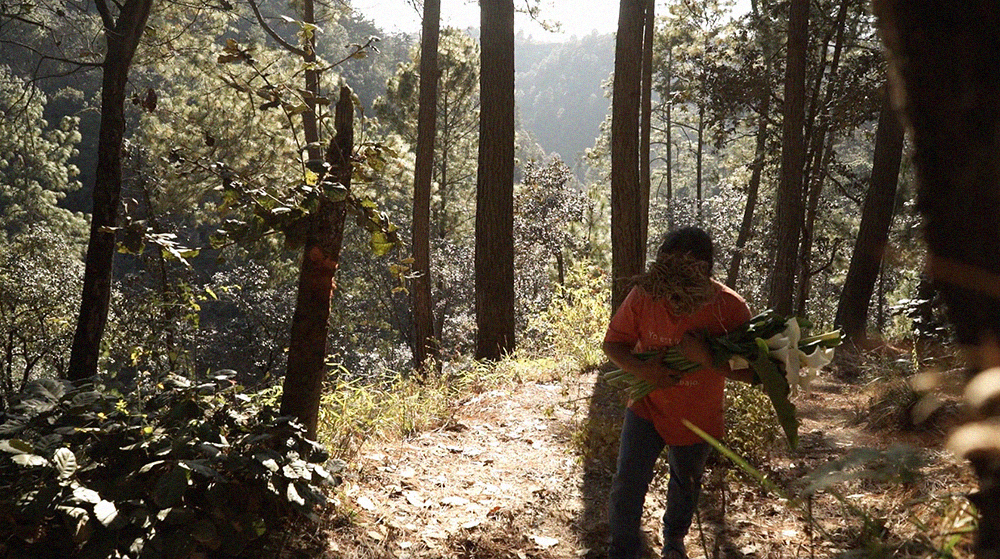
At nu jukukempe bik ́in – Te traigo arrastrando conmigo (I’m Dragging You Along With Me)
Edgar Calel 2015 Single-channel video 2:07 min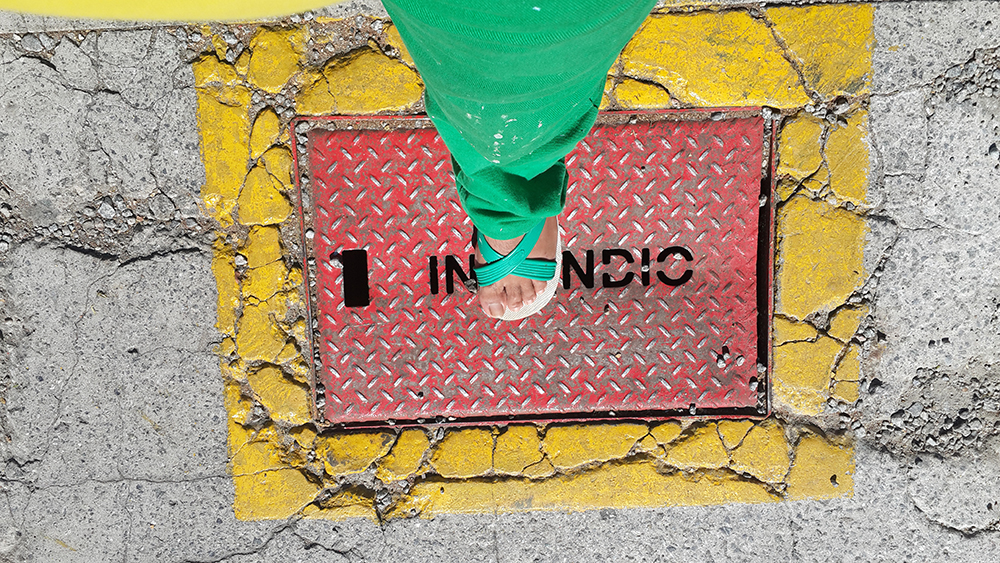
IN_ _ NDIO
Edgar Calel 2016 Digital photography on cotton paper 14.17 x 25.20 in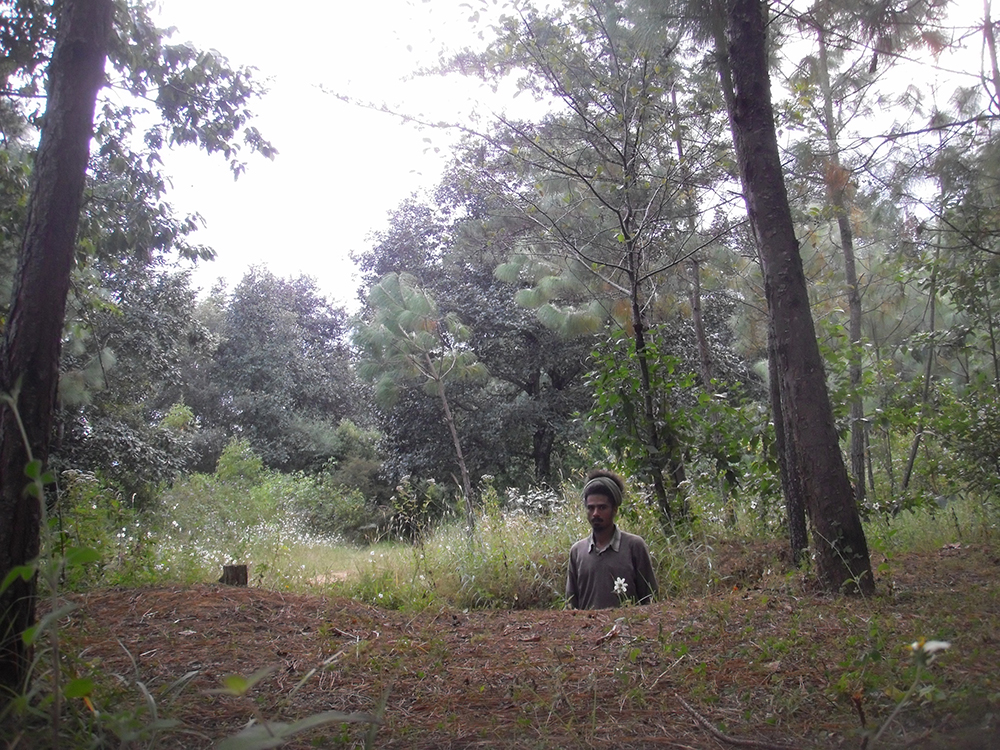
Sin título [Autorretrato adentro de una fosa común (De la série noticias de América)] (Untitled] [Self-portrait inside a mass grave (From the series noticias de América)]
Paulo Nazareth 2011 Photo printing on cotton paper 8.6 x 11.4 in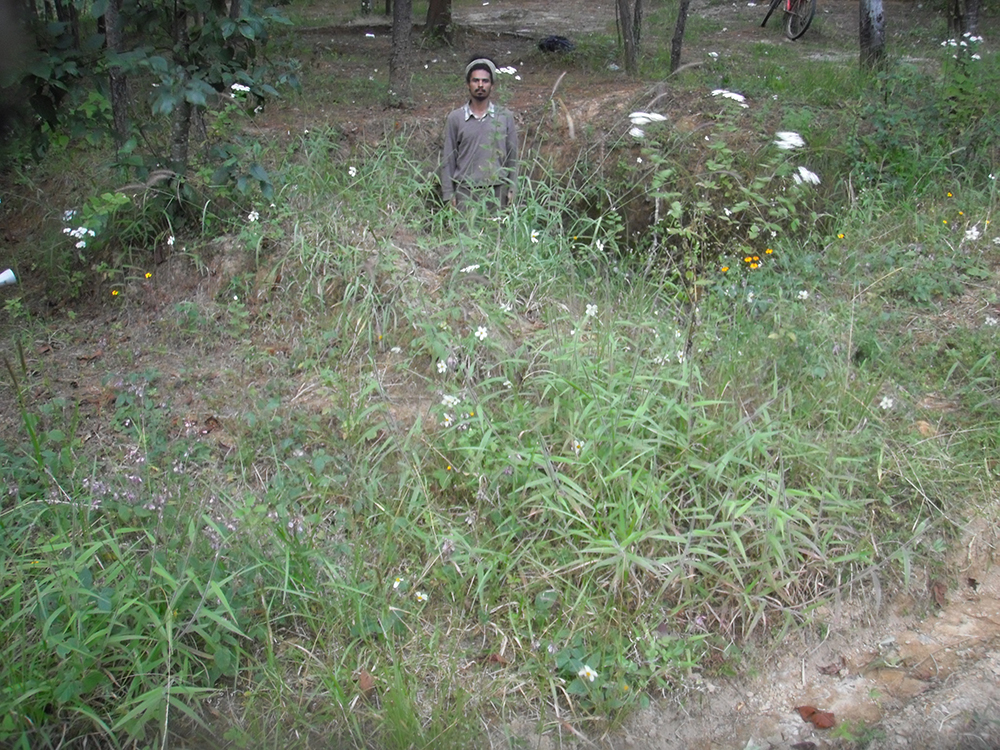
Sin título [Autorretrato adentro de una fosa común (De la série noticias de América)] (Untitled] [Self-portrait inside a mass grave (From the series noticias de América)]
Paulo Nazareth 2011 Photo printing on cotton paper 8.6 x 11.4 in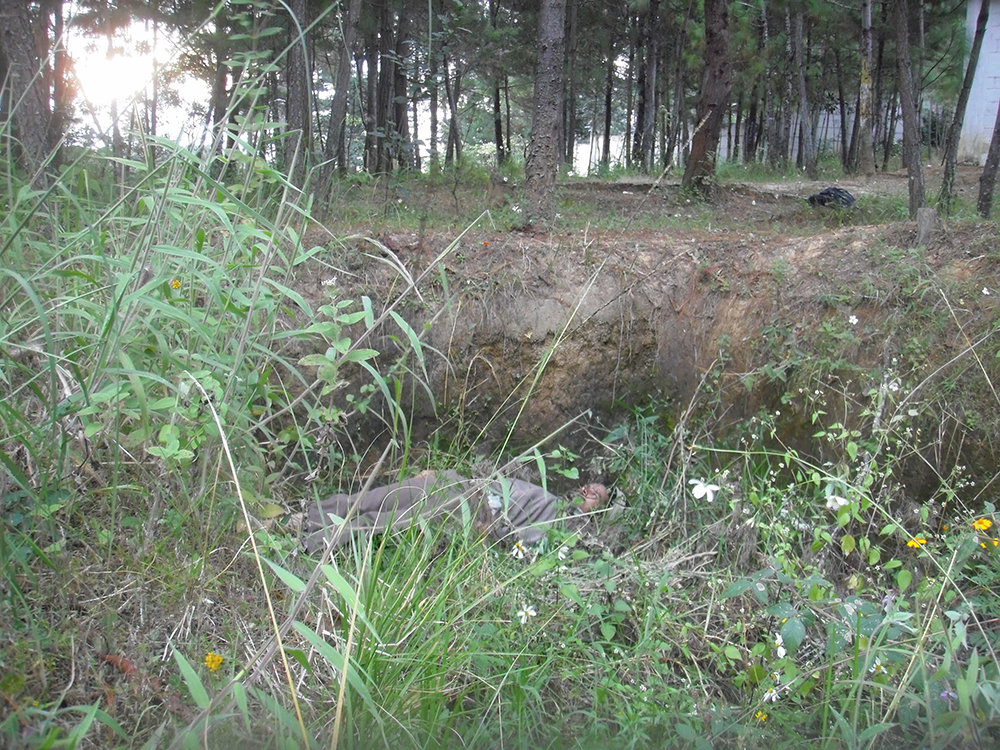
Sin título [Autorretrato adentro de una fosa común (De la série noticias de América)] (Untitled] [Self-portrait inside a mass grave (From the series noticias de América)]
Paulo Nazareth 2011 Photo printing on cotton paper 8.6 x 11.4 in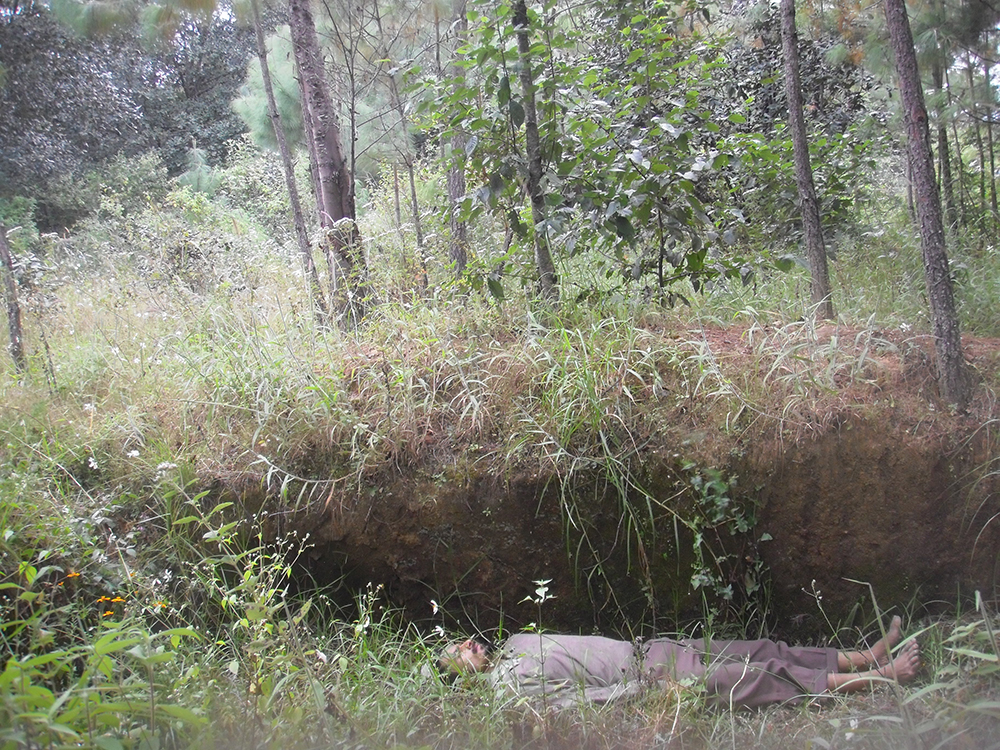
Sin título [Autorretrato adentro de una fosa común (De la série noticias de América)] (Untitled] [Self-portrait inside a mass grave (From the series noticias de América)]
Paulo Nazareth 2011 Photo printing on cotton paper 8.6 x 11.4 in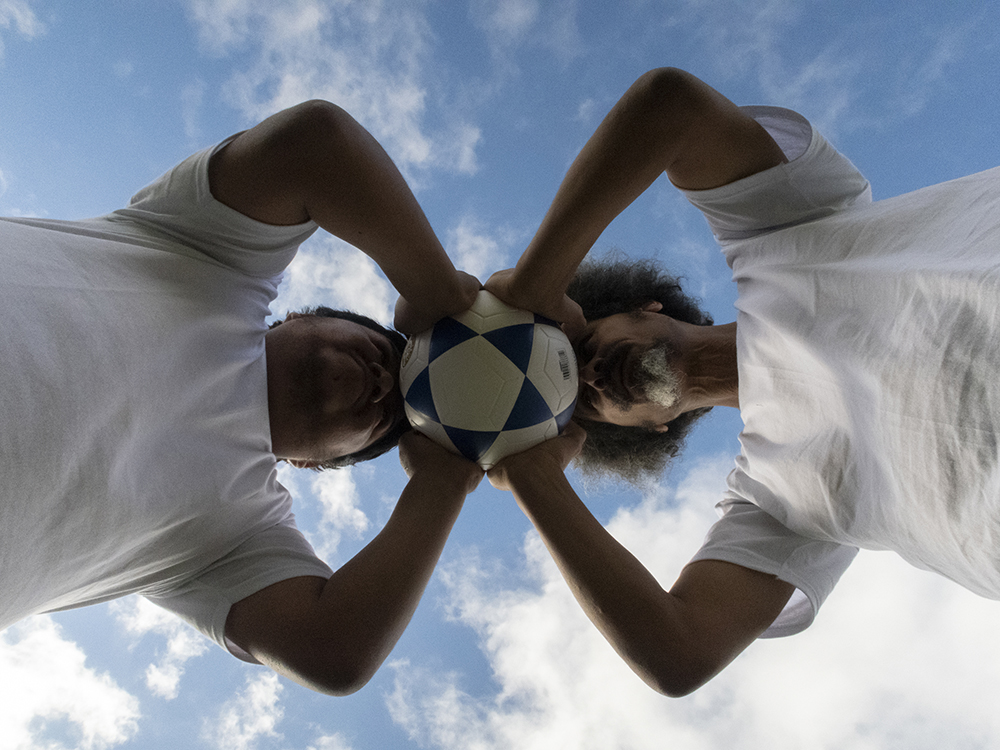
El cielo sobre nuestras cabezas (The Sky Above Our Heads)
Paulo Nazareth & Edgar Calel 2023 Photo printing on cotton paper 17.7 x 31.4 in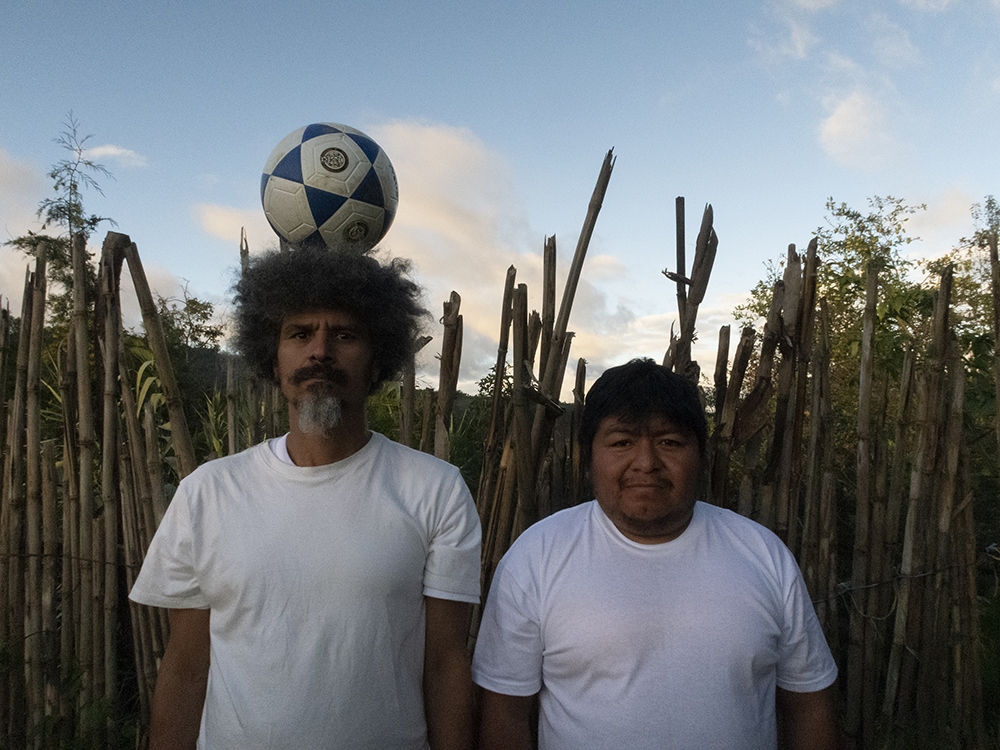
El cielo sobre nuestras cabezas II (The Sky Above Our Heads II)
Paulo Nazareth & Edgar Calel 2023 Photo printing on cotton paper 17.7 x 31.4 in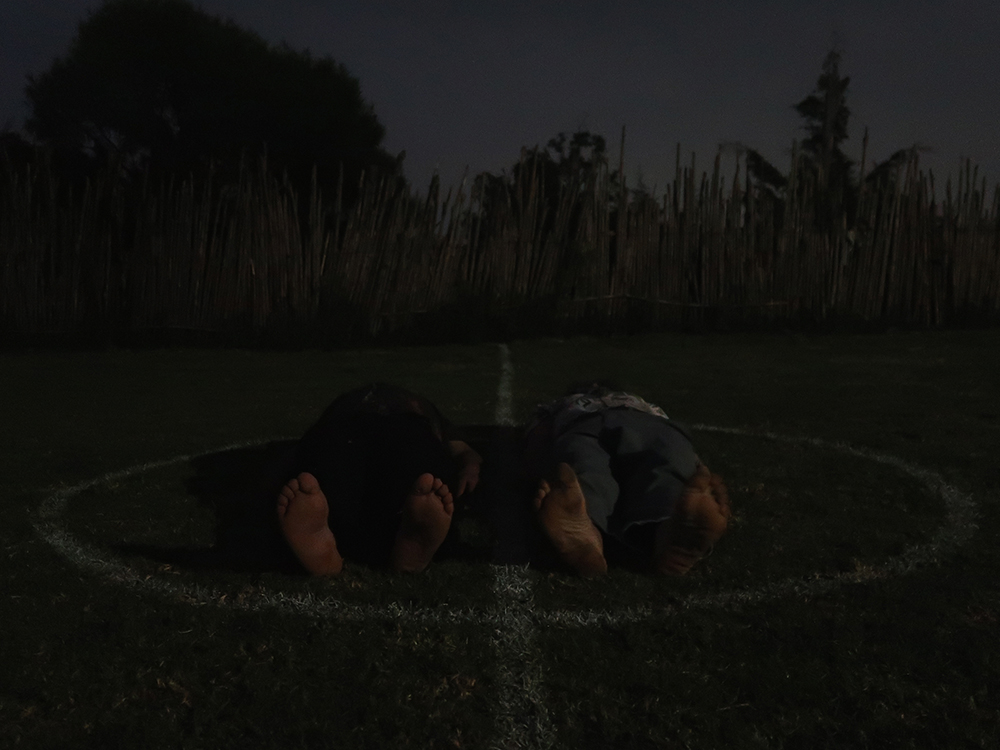
Untitled [At My Brother ́s Home]
Paulo Nazareth & Edgar Calel 2023 Photo printing on cotton paper 17.7 x 31.4 in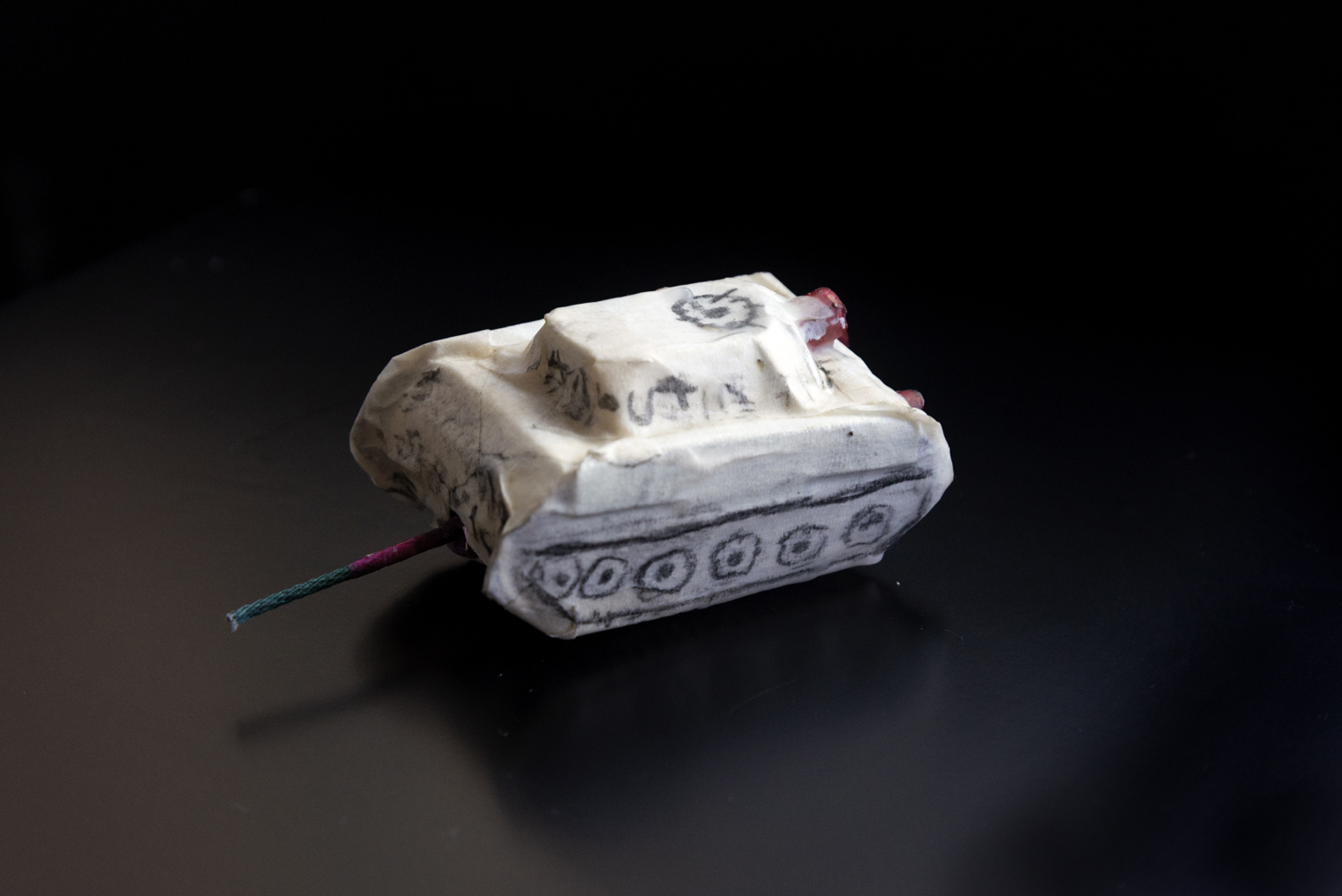
Toy [Or You Know What it Is]
Paulo Nazareth 2023 Firecracker, cardboard, adhesive tape and charcoal 1.8 x 4.5 x 2.1 in

In My Brother’s House
2023 Installation view, San Juan Comalapa, Chimaltenango, Photo: Margo Porres
In My Brother’s House
2023 Installation view, San Juan Comalapa, Chimaltenango, Photo: Margo Porres
In My Brother’s House
2023 Installation view, San Juan Comalapa, Chimaltenango, Photo: Margo Porres
In My Brother’s House
2023 Installation view, San Juan Comalapa, Chimaltenango, Photo: Margo Porres
In My Brother’s House
2023 Installation view, San Juan Comalapa, Chimaltenango, Photo: Margo Porres
In My Brother’s House
2023 Installation view, San Juan Comalapa, Chimaltenango, Photo: Margo Porres
In My Brother’s House
2023 Installation view, San Juan Comalapa, Chimaltenango, Photo: Margo Porres
In My Brother’s House
2023 Installation view, San Juan Comalapa, Chimaltenango, Photo: Margo Porres
In My Brother’s House
2023 Installation view, San Juan Comalapa, Chimaltenango, Photo: Margo Porres
In My Brother’s House
2023 Installation view, San Juan Comalapa, Chimaltenango, Photo: Margo Porres
In My Brother’s House
2023 Installation view, San Juan Comalapa, Chimaltenango, Photo: Margo Porres
In My Brother’s House
2023 Installation view, San Juan Comalapa, Chimaltenango, Photo: Margo Porres
In My Brother’s House
2023 Installation view, San Juan Comalapa, Chimaltenango, Photo: Margo Porres
In My Brother’s House
2023 Installation view, San Juan Comalapa, Chimaltenango, Photo: Margo Porres
In My Brother’s House
2023 Installation view, San Juan Comalapa, Chimaltenango, Photo: Margo Porres
In My Brother’s House
2023 Installation view, San Juan Comalapa, Chimaltenango, Photo: Margo Porres
In My Brother’s House
2023 Installation view Proyectos Ultravioleta Guatemala City, Guatemala
In My Brother’s House
2023 Installation view Proyectos Ultravioleta Guatemala City, Guatemala
In My Brother’s House
2023 Installation view Proyectos Ultravioleta Guatemala City, Guatemala
In My Brother’s House
2023 Installation view Proyectos Ultravioleta Guatemala City, Guatemala
In My Brother’s House
2023 Installation view Proyectos Ultravioleta Guatemala City, Guatemala
In My Brother’s House
2023 Installation view Proyectos Ultravioleta Guatemala City, Guatemala
In My Brother’s House
2023 Installation view Proyectos Ultravioleta Guatemala City, Guatemala
In My Brother’s House
2023 Installation view Proyectos Ultravioleta Guatemala City, Guatemala
Banana Market / Art Market
Paulo Nazareth 2023 Vehicle and plantains 77.6 x 64.7 x 168.5 in
Sem título, da série Notícias de América (Untitled, from the series News from America)
Paulo Nazareth 2011/ 2012 Photo printing on cotton paper 18 x 23.6 in
Me venden I (I Am Being Sold I)
Edgar Calel 2023 Natural pigment on canvas 14.96 x 20.07 in
Me venden II (I Am Being Sold II)
Edgar Calel 2023 Natural pigment on canvas 14.96 x 20.07 in
Sem titulo [Minimalismo o fosa común] (Untitled [Minimalism or mass grave])
Paulo Nazareth 2023 Adobe with soil from the dictatorship’s clandestine cemetery 11 x 164.5 x 10.4 in
Kai Atit (Two Grandmothers)
Edgar Calel 2023 Natural pigment on cotton paper 43.3 x 26.25 x 74 in
In My Brother’s House
Paulo Nazareth 2023 Photo printing on cotton paper 26.2 x 19.6 in
L’arbre d’oublier (The Tree of Forgetting)
Paulo Nazareth 2013 Single-channel video 27:30 min.
Antropologia do negro I
Paulo Nazareth 2014 Video performance 6:05 min.
Monument to The World’s Mother
Paulo Nazareth 2023 Newspaper, colored paper, pencils, ink and stamp 70.9 x 35 x 17.5 in
Untitled [Two identical bottles]
Paulo Nazareth 2023 Glass bottles, plastic, corn and bean 13.8 x 7.9 x 3.1 in
Apontamentos a aplavra verdadeira (Notes On The Real World)
Paulo Nazareth 2023 Book and thread 5.7 x 6.1 x 8.9 in
Araucaria
Paulo Nazareth 2023 Charcoal on wood 3.1 x 67.5 x 24 in
Araucaria
Paulo Nazareth 2023 Charcoal on wood 3.1 x 67.5 x 24 in
Ruchi tinamit Ruchi wäy, II (A la orilla del pueblo, a la orilla de la tortilla II)
Edgar Calel 2023 Watercolor and ink on cotton paper 13.78 x 19.69 in
Ruchi tinamit Ruchi wäy III (A la orilla del pueblo, a la orilla de la tortilla III)
Edgar Calel 2023 Watercolor and ink on cotton paper 13.78 x 19.69 in
Ruchi tinamit Ruchi wäy, VII (A la orilla del pueblo, a la orilla de la tortilla VII)
Edgar Calel 2023 Watercolor and ink on cotton paper 13.78 x 19.69 in
Ruchi tinamit Ruchi wäy VIII (A la orilla del pueblo, a la orilla de la tortilla VIII)
Edgar Calel 2023 Watercolor and ink on cotton paper 13.78 x 19.69 in
In My Brother’s House
2023 Installation view Proyectos Ultravioleta Guatemala City, Guatemala
Ru Tee Jay (Mother of the House)
Edgar Calel 2023 Wooden chair, raw canvas, natural pigment, stones, wool, photographic print, candle and plastic string 19.69 x 15.75 x 12.8 in
Untitled, From the Series Objects to Block the Sun From My Eyes
Paulo Nazareth 2010 Photo printing on cotton paper 23.6 x 35.4 in
Untitled [Avati Mirim]
Paulo Nazareth 2013 Photo printing on cotton paper 18 x 23.6 in
Untitled [Avati / Mani]
Paulo Nazareth 2013 Photo printing on cotton paper 18 x 23.6 in
Untitled [Avati / Mani]
Paulo Nazareth 2013 Photo printing on cotton paper 18 x 23.6 in
Untitled [Avati Puku Pitã]
Paulo Nazareth 2012 Photo printing on cotton paper 8.6 x 11.4 in
Untitled [Avati Puku Pitã]
Paulo Nazareth 2012 Photo printing on cotton paper 8.6 x 11.4 in
Retal Qa K’aslemac (The Trace of Life)
Edgar Calel 2023 Natural pigment on cotton paper 59 x 82.68 in
Marco Temporal
Paulo Nazareth 2023 Dirt and lime powder installation 128.3 x 90.9 in
Estado Nacional
Paulo Nazareth 2023 Suitcase, lime and tapioca powder 41.3 x 16.4 x 9.8 in
Cacao
Paulo Nazareth 2023 Crochet and cacao pod 27 x 3.1 x 3.3 in
At nu jukukempe bik ́in – Te traigo arrastrando conmigo (I’m Dragging You Along With Me)
Edgar Calel 2015 Single-channel video 2:07 min
IN_ _ NDIO
Edgar Calel 2016 Digital photography on cotton paper 14.17 x 25.20 in
Sin título [Autorretrato adentro de una fosa común (De la série noticias de América)] (Untitled] [Self-portrait inside a mass grave (From the series noticias de América)]
Paulo Nazareth 2011 Photo printing on cotton paper 8.6 x 11.4 in
Sin título [Autorretrato adentro de una fosa común (De la série noticias de América)] (Untitled] [Self-portrait inside a mass grave (From the series noticias de América)]
Paulo Nazareth 2011 Photo printing on cotton paper 8.6 x 11.4 in
Sin título [Autorretrato adentro de una fosa común (De la série noticias de América)] (Untitled] [Self-portrait inside a mass grave (From the series noticias de América)]
Paulo Nazareth 2011 Photo printing on cotton paper 8.6 x 11.4 in
Sin título [Autorretrato adentro de una fosa común (De la série noticias de América)] (Untitled] [Self-portrait inside a mass grave (From the series noticias de América)]
Paulo Nazareth 2011 Photo printing on cotton paper 8.6 x 11.4 in
El cielo sobre nuestras cabezas (The Sky Above Our Heads)
Paulo Nazareth & Edgar Calel 2023 Photo printing on cotton paper 17.7 x 31.4 in
El cielo sobre nuestras cabezas II (The Sky Above Our Heads II)
Paulo Nazareth & Edgar Calel 2023 Photo printing on cotton paper 17.7 x 31.4 in
Untitled [At My Brother ́s Home]
Paulo Nazareth & Edgar Calel 2023 Photo printing on cotton paper 17.7 x 31.4 in
Toy [Or You Know What it Is]
Paulo Nazareth 2023 Firecracker, cardboard, adhesive tape and charcoal 1.8 x 4.5 x 2.1 in
Proyectos Ultravioleta
Presenta:
In My Brother’s House
++ Public Program of Artistic Actions A Gusto
Paulo Nazareth and Edgar Calel
Guatemala City / San Juan Comalapa
December 16, 2023
Curatorship and text by: Luciana de Oliveira
Art and shamanism can transcend the limits of representation through performance.
A man walks around a large tree, its thick trunk decorated with flags. He walks backward. Goats, people, cars, motorcycles, and a statue facing backward compose the changing stage of this repetitive action. The noise of the city can be heard. A man appears in a forest of tall and imposing trees, walking. He drags a bush tied in his long black braid, carrying a bouquet of flowers in his hands and roots on his face as a mask. The sunlight magnetizes the forest and the man. The first man takes many turns, walking backward around the large tree. The second man passes quickly. He exits the forest and ventures into it, climbing a mountain. The tree seems like an extension of his body. Two walking men, two trees. How does time twist to create existential territories and crossroads that nourish and expand this act of images in motion? Sometimes one must follow the bananas. Think about geopolitics through the eye of the banana. The banana crosses borders that certain bodies do not cross, as was the case with Paulo Nazareth’s attempt to cross the U.S. border with Pedro Calel driving a green van full of bananas. Pedro’s visa was not approved. The bananas reached the border open to the “free market,” but they could not be transported by the hands that planted them. Unwanted hands of unwanted bodies. Since before the era of the United Fruit Company, Guatemalan bananas have been welcomed in many parts of the world. Guatemala, the only Latin American country that has managed to carry out a moderate but inspiring agrarian reform, suffered a harsh political blow that reinstalled dictatorship and state violence as a way to ensure the privileges of landowners through the ongoing colonialism that expropriates indigenous territories and lives. But still, one can follow the mate tea with its small eye. It was because of mate tea that eight indigenous reserves were created in the state of Mato Grosso do Sul, Brazil, confining the Kaiowá and Guaraní Nhandeva peoples to artificial territories so that natural herbal resources could be freely exploited by the Matte Larangeira Company, another “multinational” – which is more of a North American “mononational” – obviously using semi-enslaved indigenous labor as the basis for accumulation. Edgar Calel became acquainted with this reality in 2014 when he visited a retaken and self-demarcated territory of the Kaiowá people. In Brazil, that gigantic country surrendered (or condemned) to agribusiness and mining, there has never been agrarian reform. When there was a glimpse of carrying it out, it was followed, as in Guatemala, by a coup d’état and a corporate-civic dictatorship that lasted 21 years. Although the State, in the 1988 constitutional charter, recognized the original right to land of indigenous peoples, as well as the occupation of unproductive lands by landless rural workers, there is no legal certainty nor significant efforts to regularize the demarcation of ancestral traditional territories or settlements. That’s why Edgar Calel invited people from that community – men, women, elders, children, a little monkey – to imprint their footprints on paper or on the white abyss (Qetalh ri ca winaqi pa sãnq siwan/The trace of our people in the white abyss, 2014). Feet that, for millennia, walk and demarcate the territory that, as the Kaiowá testify, “is ours because the land is the color of our skin.” If the land is a mother and a tree can be a home, the exhibition “In My Brother’s House” (Projects Ultraviolet/Guatemala City) and the Public Program of Artistic Actions A Gusto (Casa Kit Kit/San Juan Comalapa-Chi Xot) is a meeting to reactivate the time machine seen in works such as L’Arbre D’Oublier / The Tree of Forgetting (Paulo Nazareth/2013) and At nu jukukempe / I bring you dragging with me (Edgar Calel/2016). It is a space of liberation, where all bodies with all their stories and memories fit. Whether it is the desire to reverse or invert time, to present traumatic pasts and re-project healing in spiral time, or the desire to make room in time for bodies that, expanded by their stories and memories, branch out across an entire continent, the millennia-old history of the great “Ladino Amefrica” It is an encounter of art, but it is also family love. A family can be the size of a continent; it can interconnect nations, species, interconnect the world here and beyond. We are open to this and would like to continue sharing, making the ceremonial wheel larger. Entering slowly and with affection into my brother’s house. Not without asking permission. Permission!